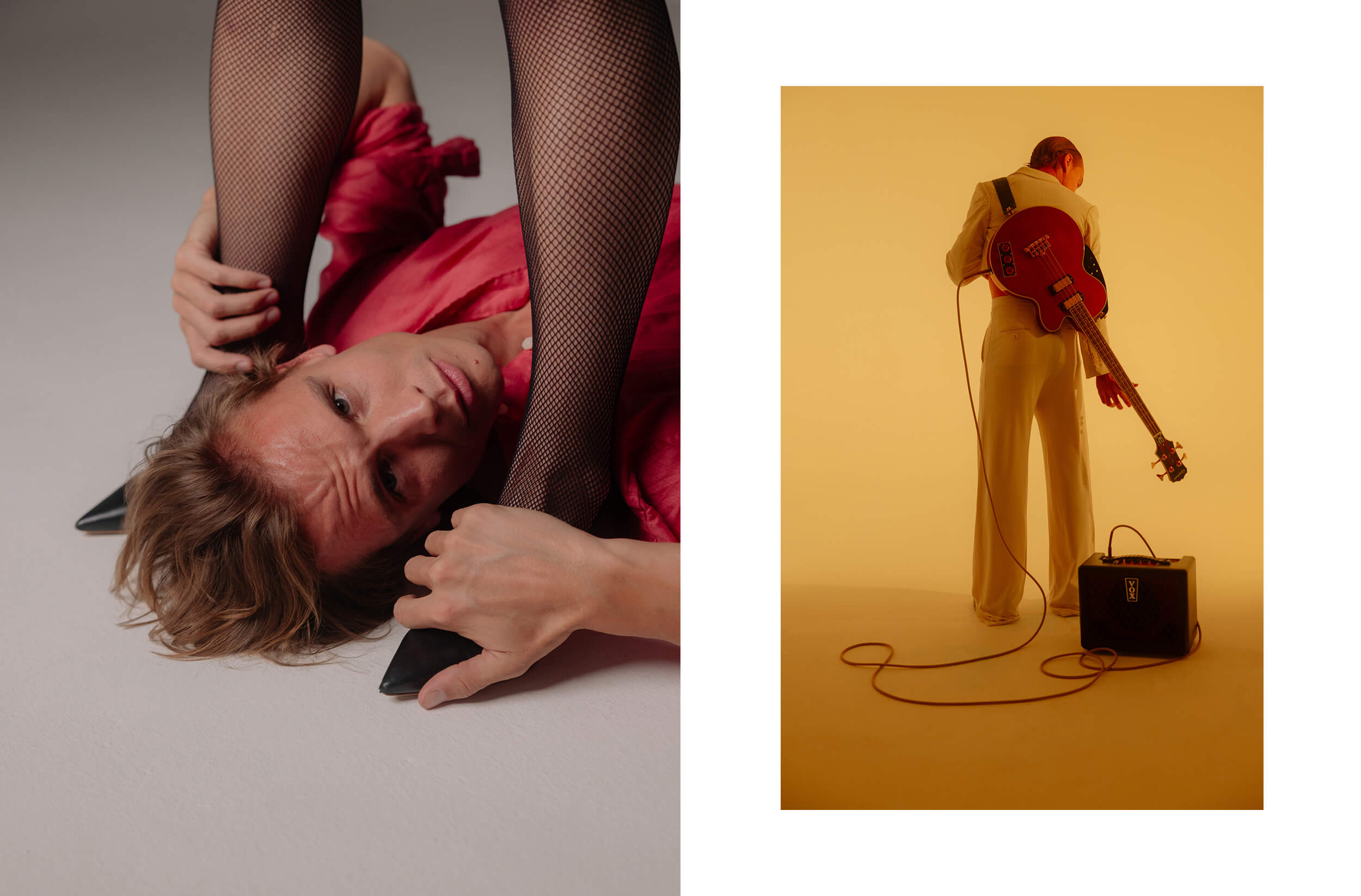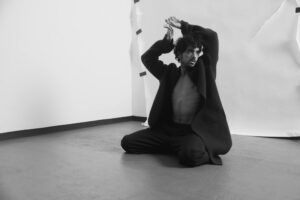There’s something magnetic about Giulio Greco. A rare combination of lucidity and passion, a kindness that doesn’t compromise on depth. In him there’s the actor, the director, the musician, the writer – but also the child who performed in front of friends and relatives, building imaginary worlds and feeding what would become a lifelong passion. And it’s from there, perhaps, that everything starts: from that primary need to tell stories and tell himself.
And he does it, he tells stories and tells himself, in our July Cover Story.
Giulio is one of those rare interpreters who seem to carry every character inside themselves long before wearing their clothes on stage, as if they were part of an inner dialogue already in progress. This is demonstrated by his role as Manfredi in “Prophecy“, coming out this month on Disney+. This is confirmed by his interpretation in “Gangs of Milano“, the second chapter of the already cult “Blocco 181“, where he brings to the stage a lucid, disturbing, but also human antagonist.
On screen, Giulio embodies with lucid ferocity the contradictions of our present. But he does it especially off stage, every time he chooses to put his own voice, his own skin and his own questions at the service of a generation that still seeks space, meaning, truth.
What’s your first memory related to cinema?
You know, I started doing advertising as a child, but I’ve always had a certain feeling with the “stage“. I did many shows at home with my brother, really interesting things for a four-year-old child: my father filmed us with a small video camera and kept all the videos of us “little actors“. In our summer house in the south of France there’s a cave where my brother and I prepared, it was our backstage, and then we invited our parents, friends and people from the village to see our little shows. We did it for years, until I was 14 I think. Through these shows I got a bit closer to the world of acting.
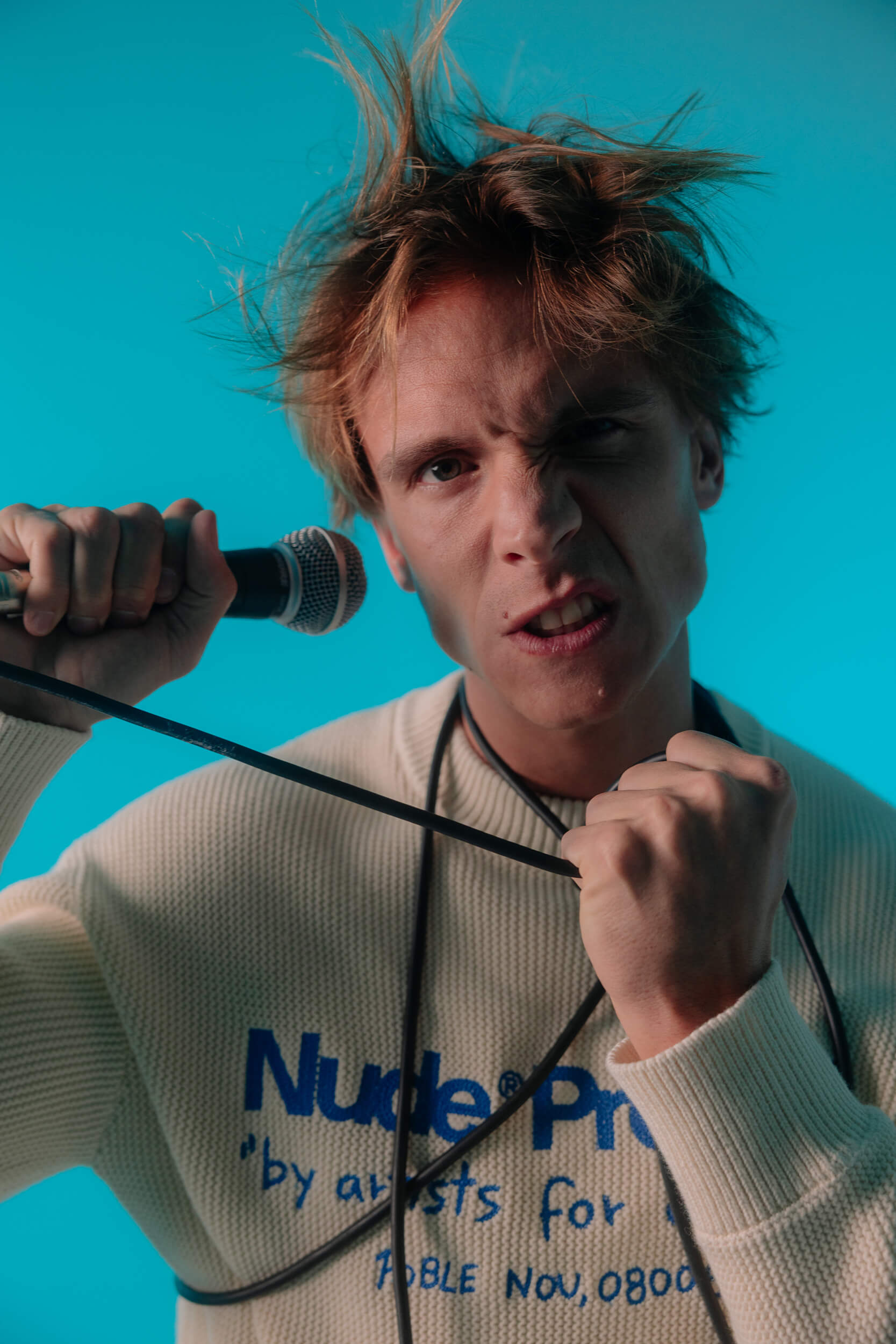
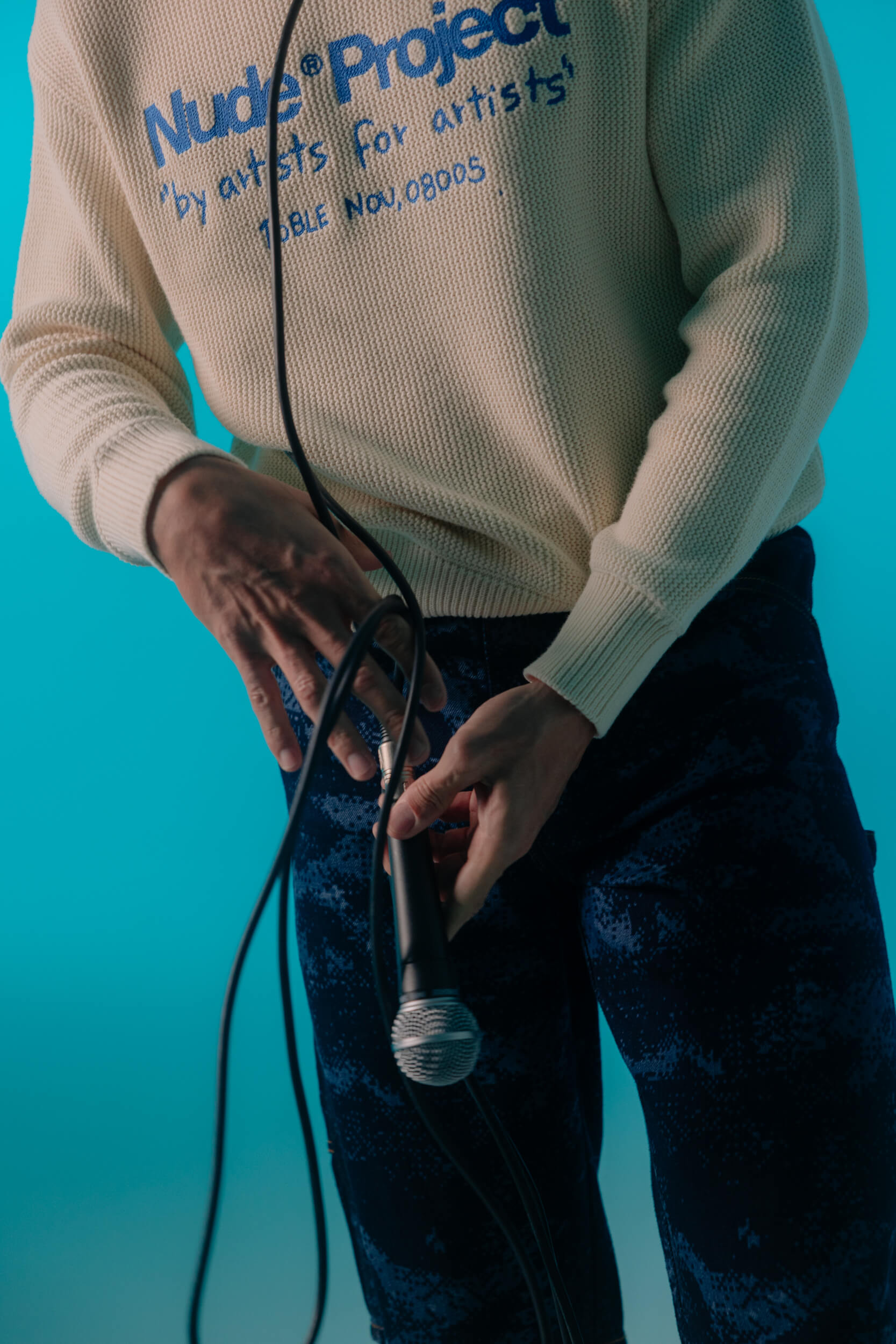
Just like Briony Tallis in “Atonement”! You know? The book and the film.
Ah, I absolutely must read this book and see the film! Here, speaking of memories more strictly related to films, I remember that our parents always took me and my brothers to the cinema, as well as to the theater and to listen to classical music. I remember when we went to see the first “The Lord of the Rings” of which I’m a great fan, along with the Harry Potter saga, which inevitably are among my first and most significant memories.
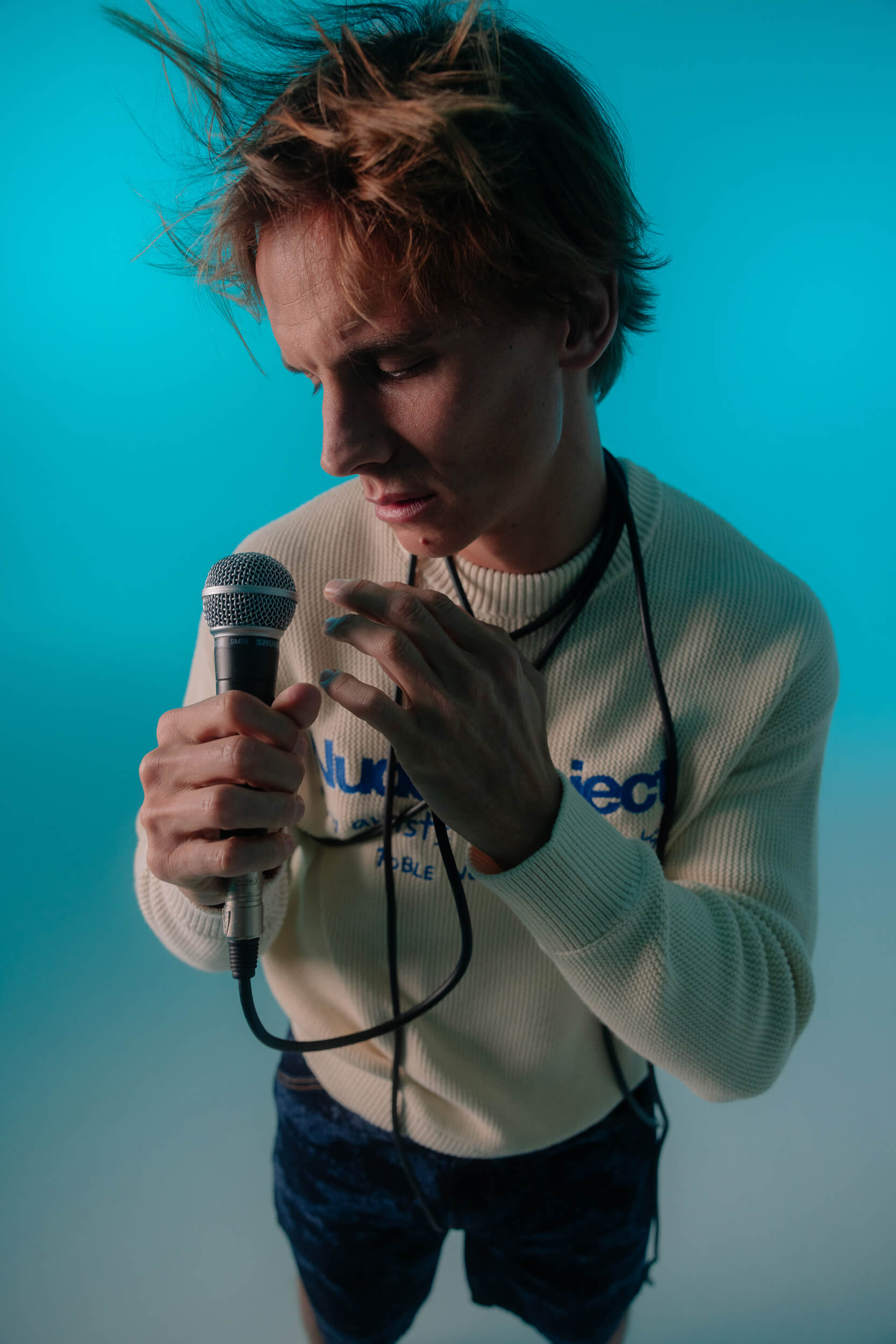
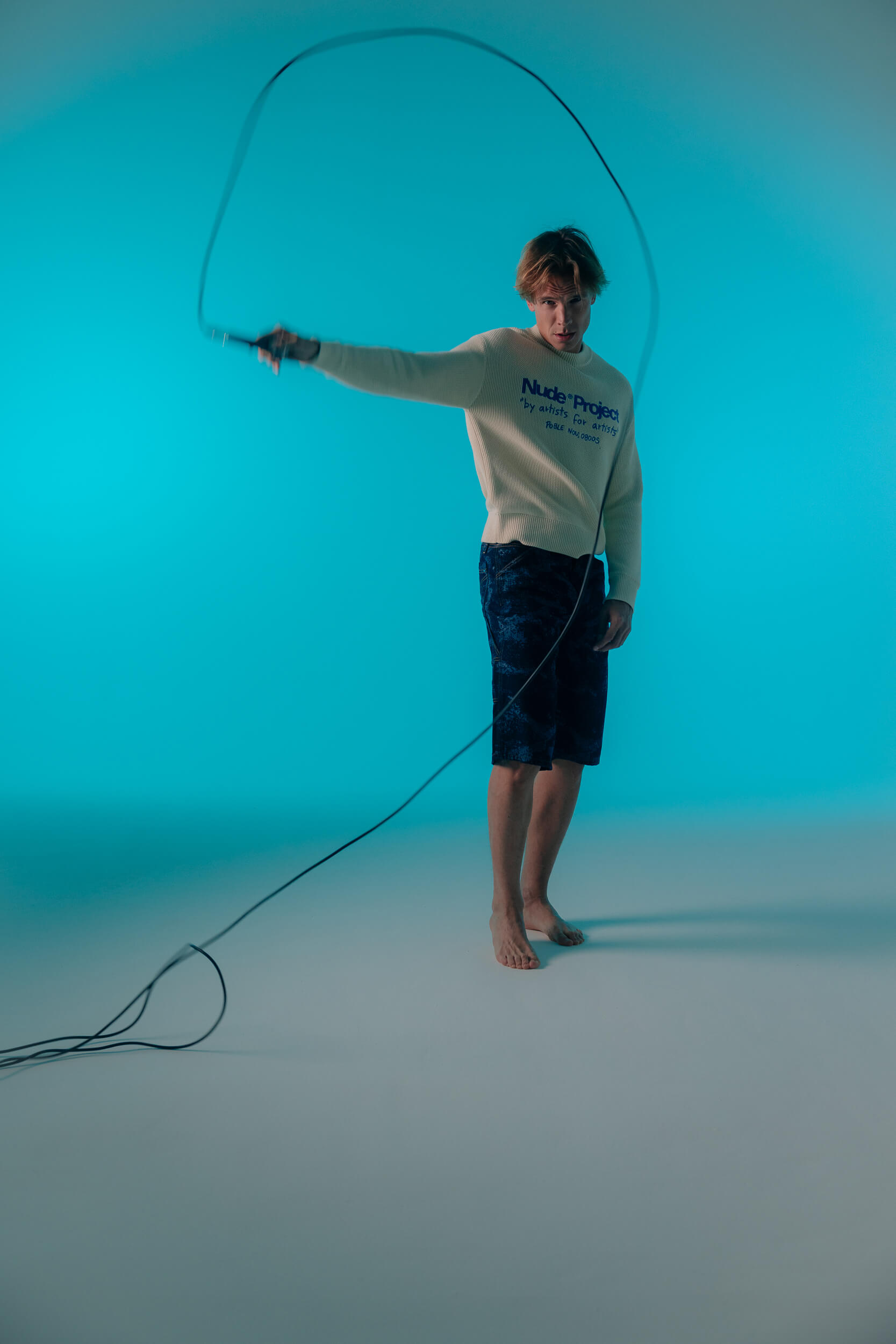
And now you’re one of the protagonists of the second chapter of “Blocco 181”, which became “Gangs of Milano”. In what direction is this new narrative moving?
Certainly, the language comes from “Blocco”: the story revolves around the same themes, but the strength of “Gangs” is the fact that here there’s even more openness at the story level. The part dedicated to the somewhat more “decadent” Milan, together with the counterpart, the “Milano Bene“, has been expanded a bit. So, in “Gangs” the total unruliness is told more profusely, the power of money, the idea that with money you can buy not only things but also people, and at the same time suburban life, which is described in an incredibly real way.
For years I played football in the suburbs of Milan, against players who had difficult living conditions, who often vented their anger in sport and also off the field. In my opinion, the directors were very good at deepening, at not approaching certain themes only from the point of view of entertainment, at going deeper. This series tells you a different and unprecedented dimension compared to other “cousin series“, those that describe the suburbs of big cities. Milan, in fact, has different dynamics compared to other Italian cities on a social, human level: there’s a part of the city that is completely over the top. I was reading that Milan has become among the five main cities in Europe targeted by the ultra-rich with assets exceeding 30 million euros. This luxury and all the comforts that this city entails and offers go in sharp contrast with the criminality that exists – Milan is in fact also the city with the highest crime rate in Italy.
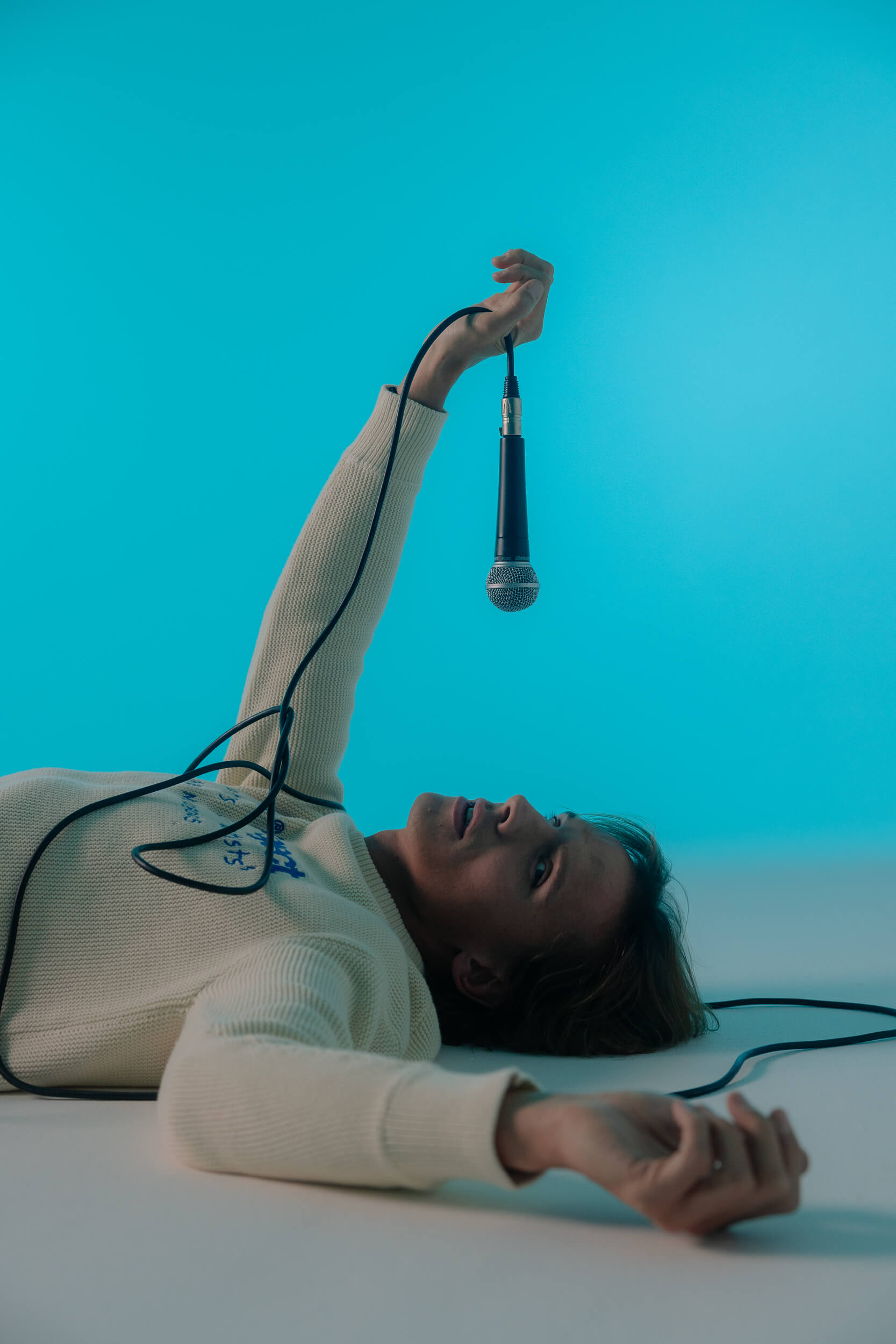
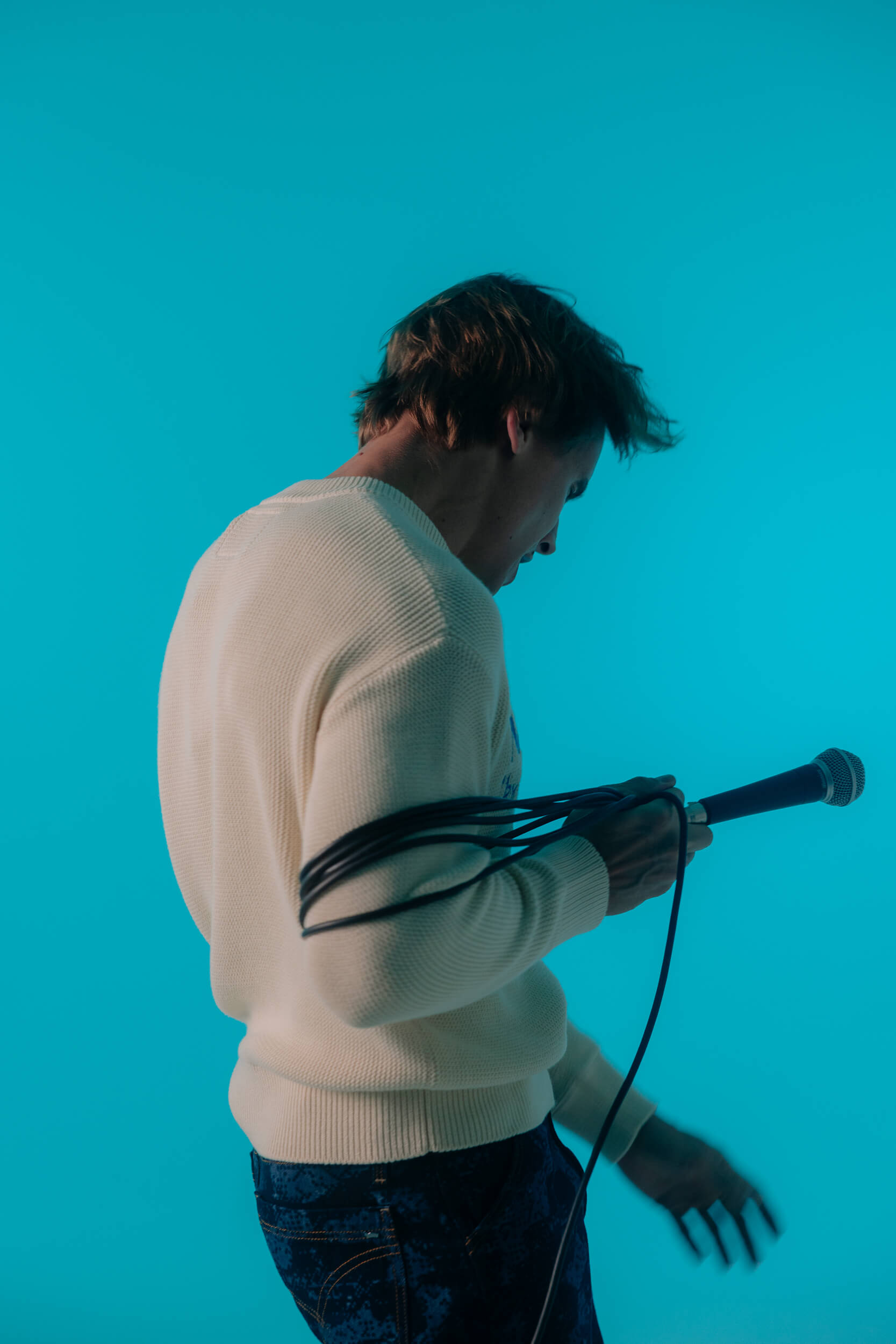
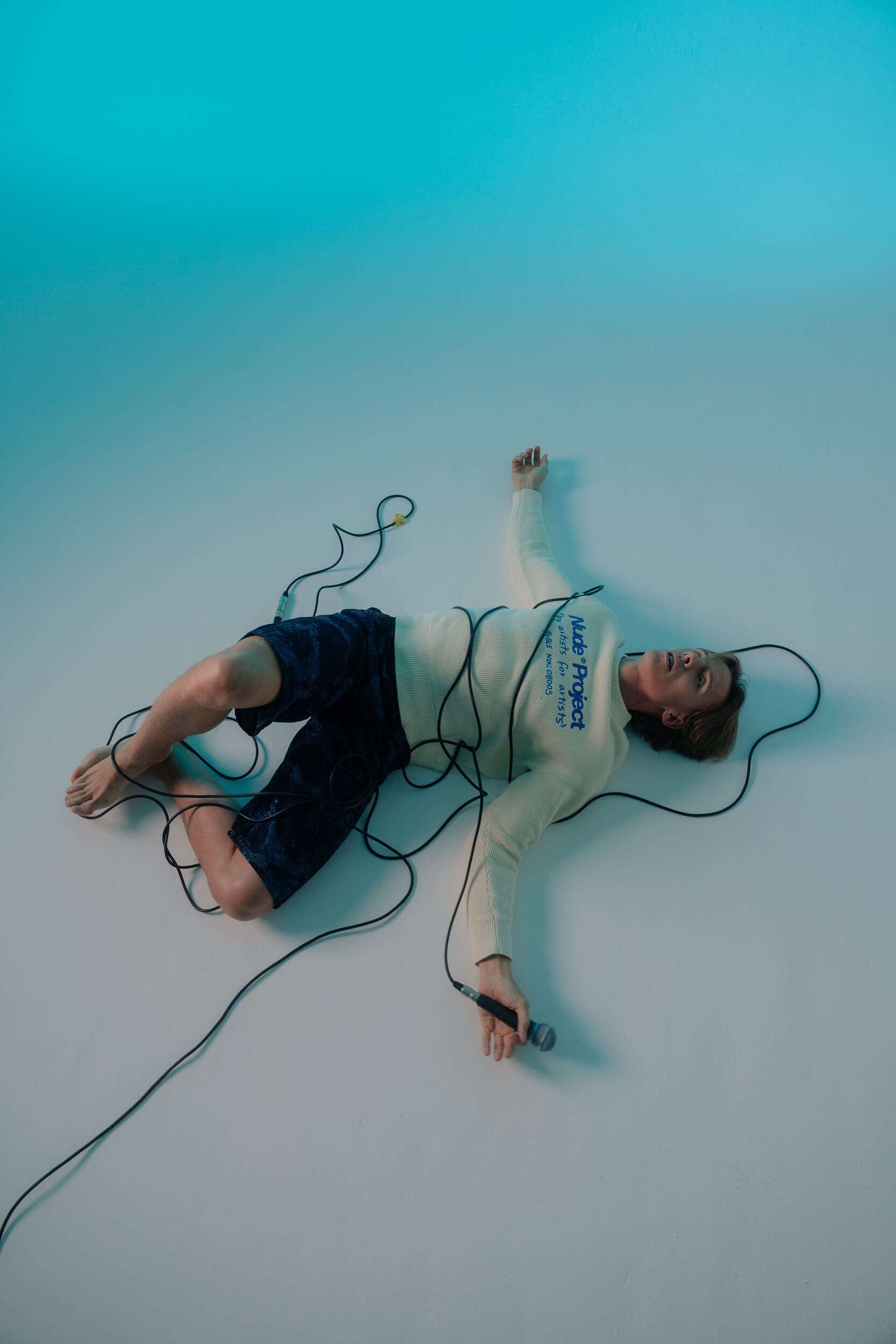
“This series tells you a different and unprecedented dimension compared to other ‘cousin series’, those that describe the suburbs of big cities.”
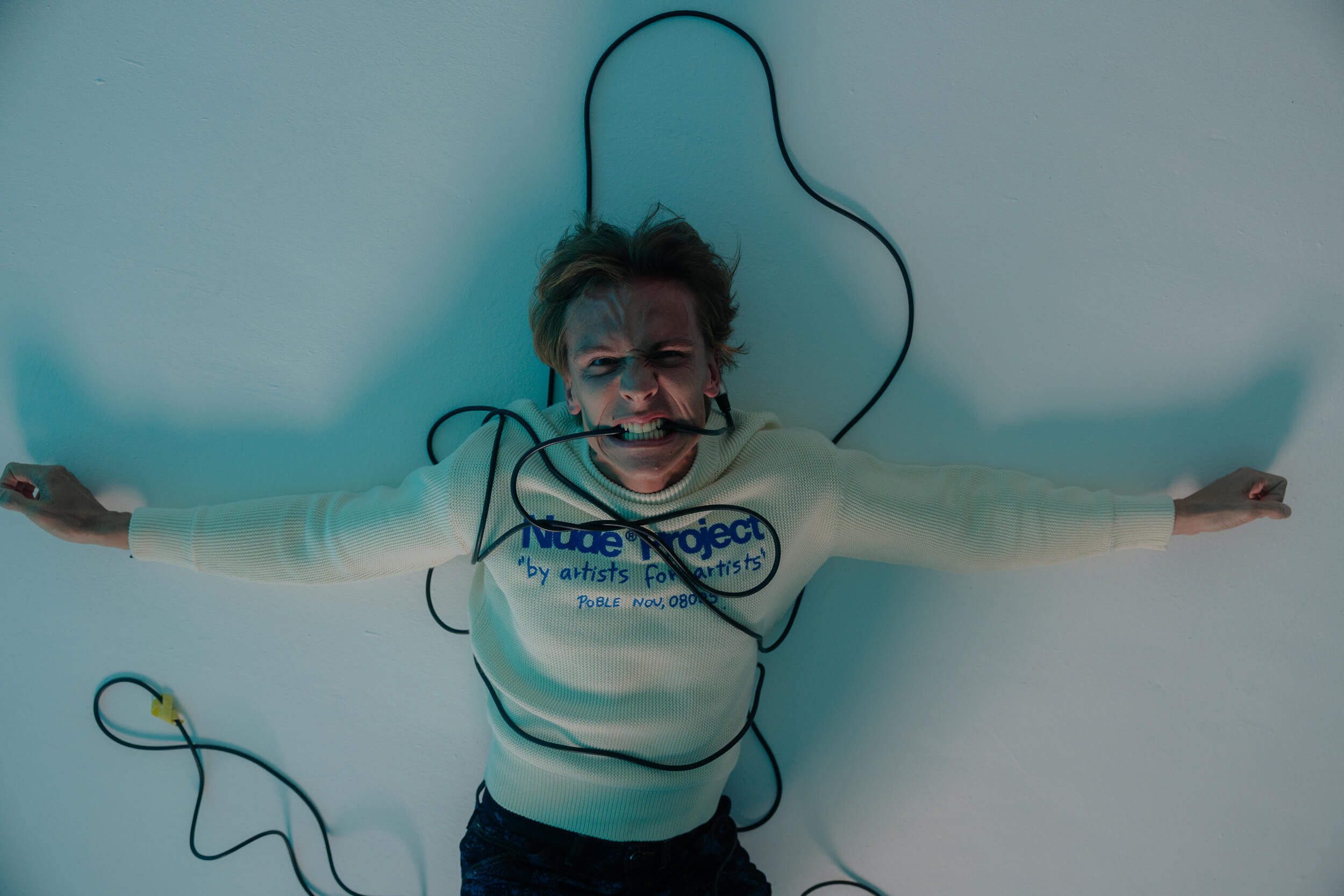
There’s an immense gap between rich and poor in Milan.
Exactly, the population is not united, the suburbs and the center don’t mix, those who live in the suburbs don’t frequent the center and vice versa. Then, there’s an even more external ring composed of all those towns that surround Milan and that are yet another reality, “healthy“, quiet and also beautiful, like Monza, Abbiategrasso, etc. It’s in the belt between these and the center of Milan that a bit of everything happens, what “Gangs” tells very well.
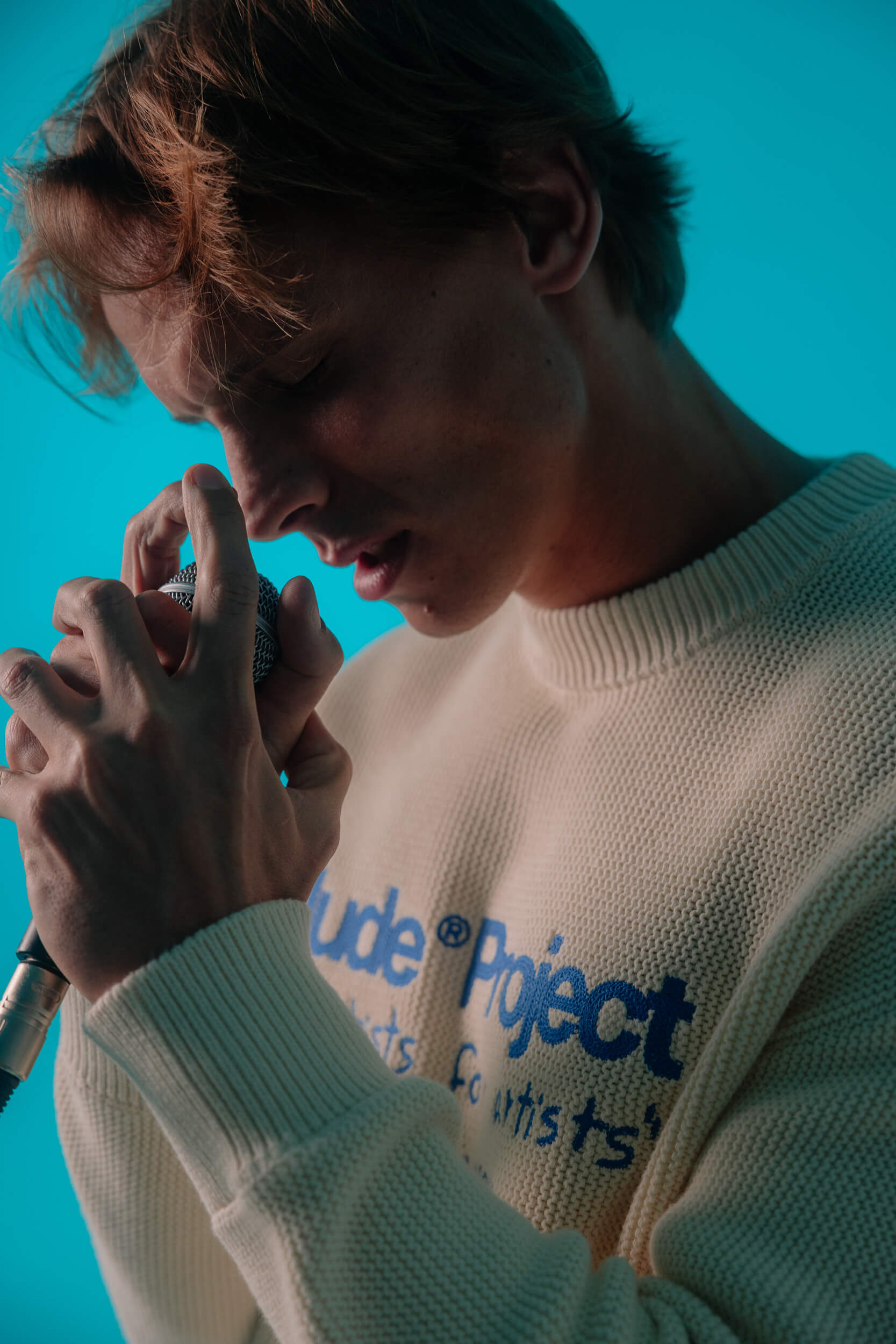
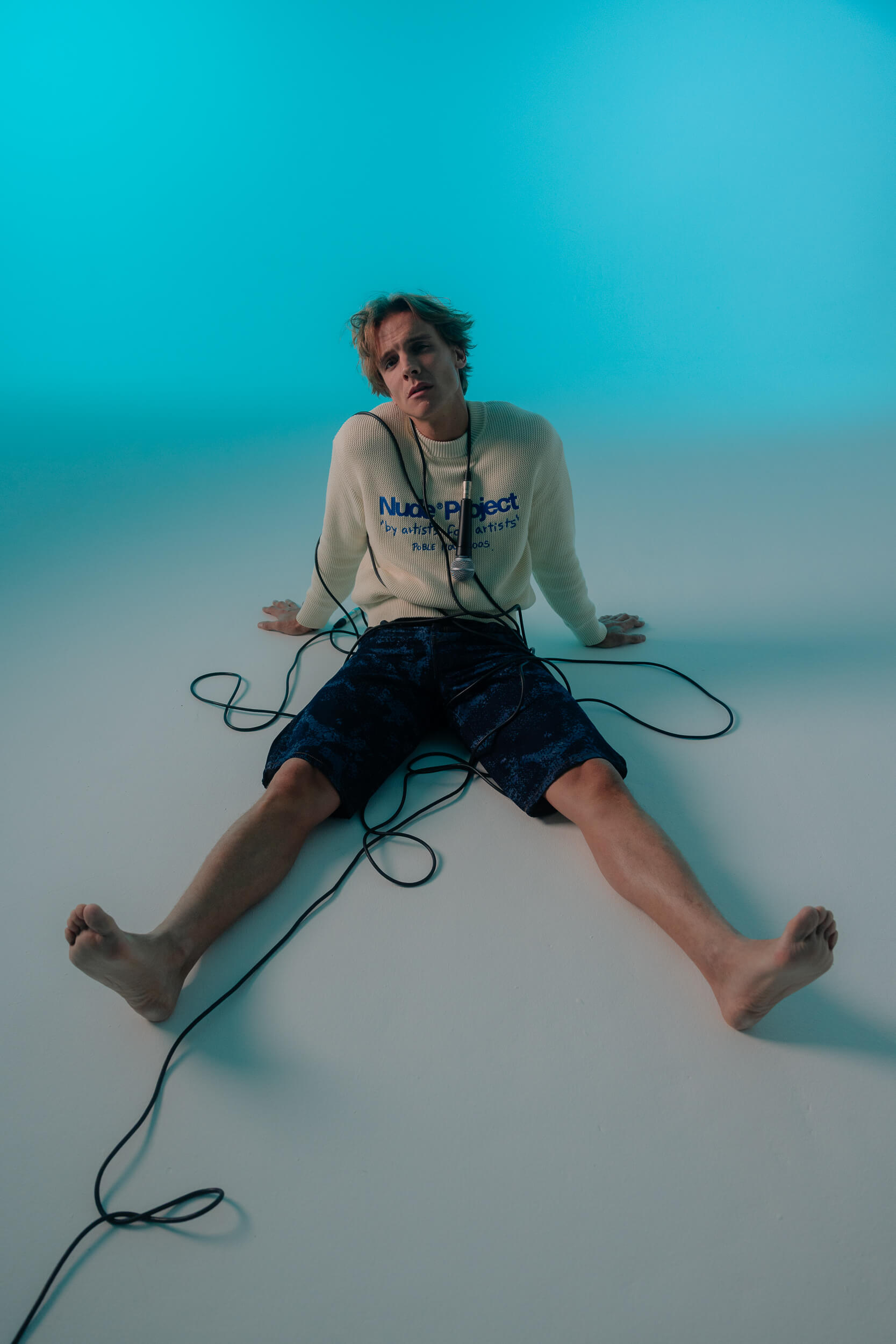
It’s very true. I recently moved from the suburbs to the center of Milan, and I feel like I’ve changed cities. From the architecture and urban care, to the way people dress and behave, especially, they are two completely different dimensions.
Sure, two worlds! And the series also talks about this, creates characters that fit very well into real dynamics. Evil characters, especially, like mine who has really horrible lines, because words no longer have weight in a world where with money you can buy everything and everyone.
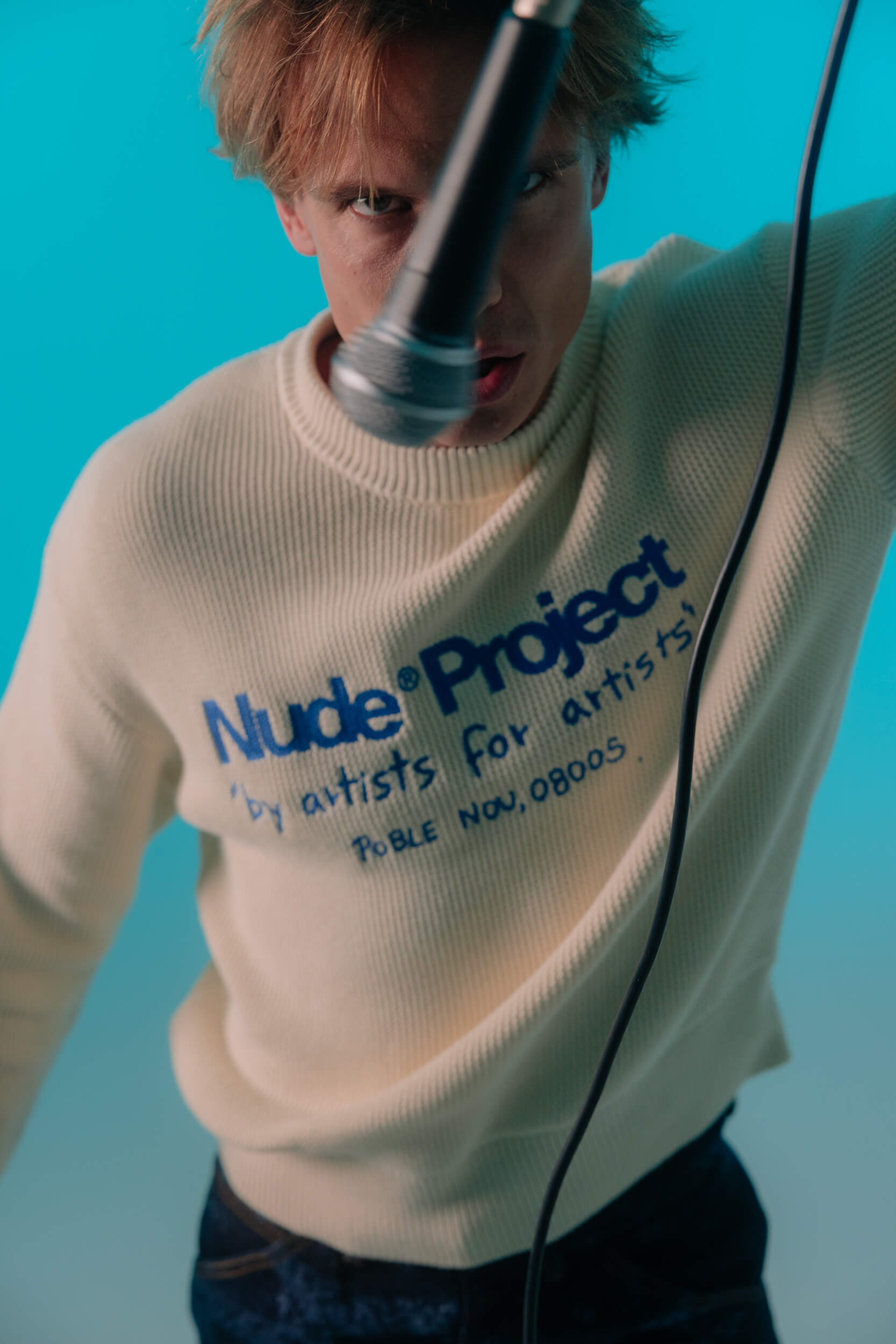
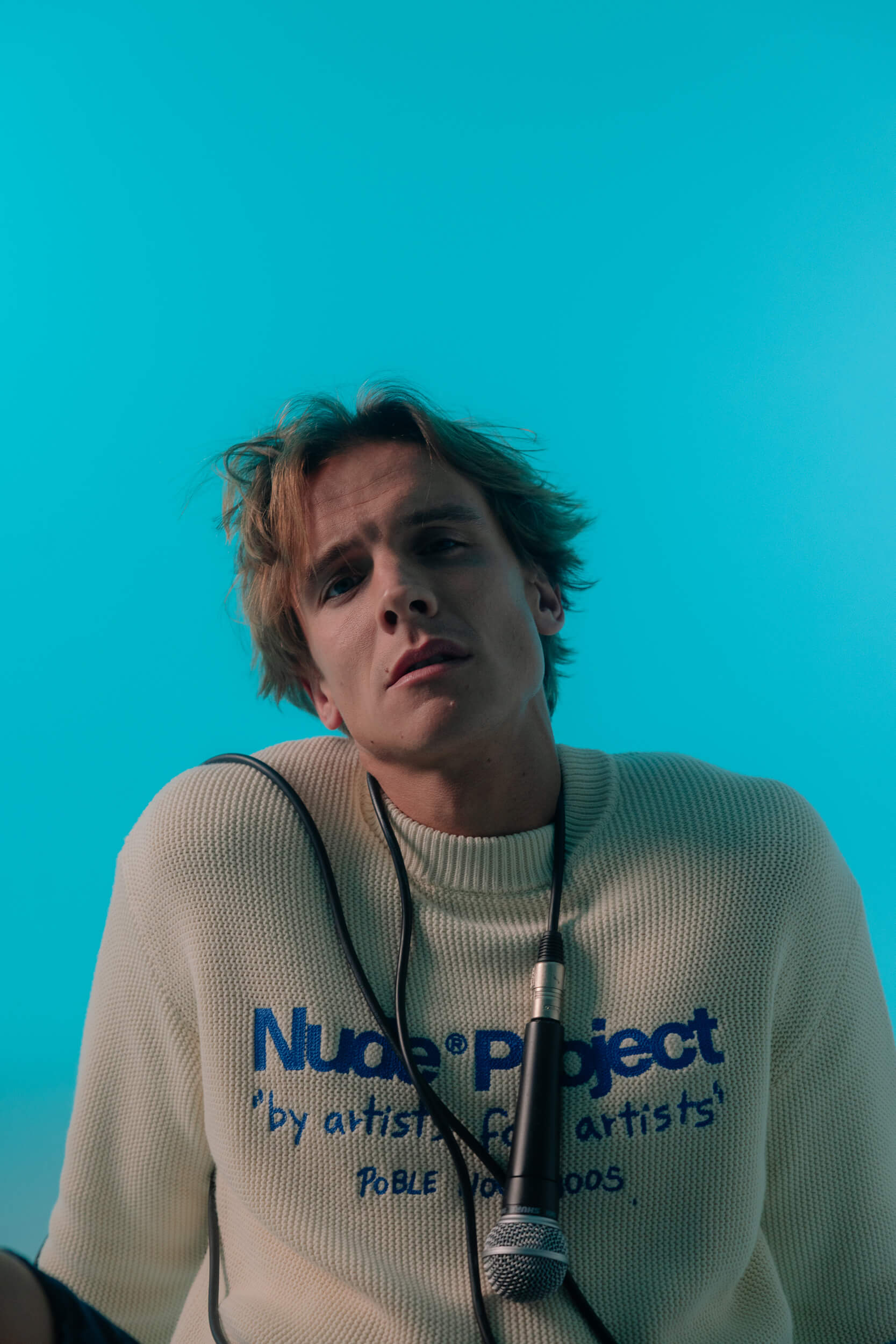
How was it working in a series so connected to the street, with gang dynamics, codes, loyalty and power? Did you prepare specifically for this role?
I had the opportunity to know the nightlife world, because I worked in clubs for many years before doing this job, so I knew certain dynamics because I experienced them firsthand. I never used substances, because it always scared me, but I constantly saw scenes similar to those told by the series unfold before my eyes. My character is over the top because of the cocaine use he does, which reduces him to that state, because he wants to escape from his background, just like many boys who come from a good family and are victims of older brothers, fathers, of the family dimension in general that crushes them with enormous social pressure – in those cases, drugs become a bit of an escape.
That of Piero, my character, is an incredible social mask that hides great suffering, and that paradoxically the suburban kids don’t wear instead.
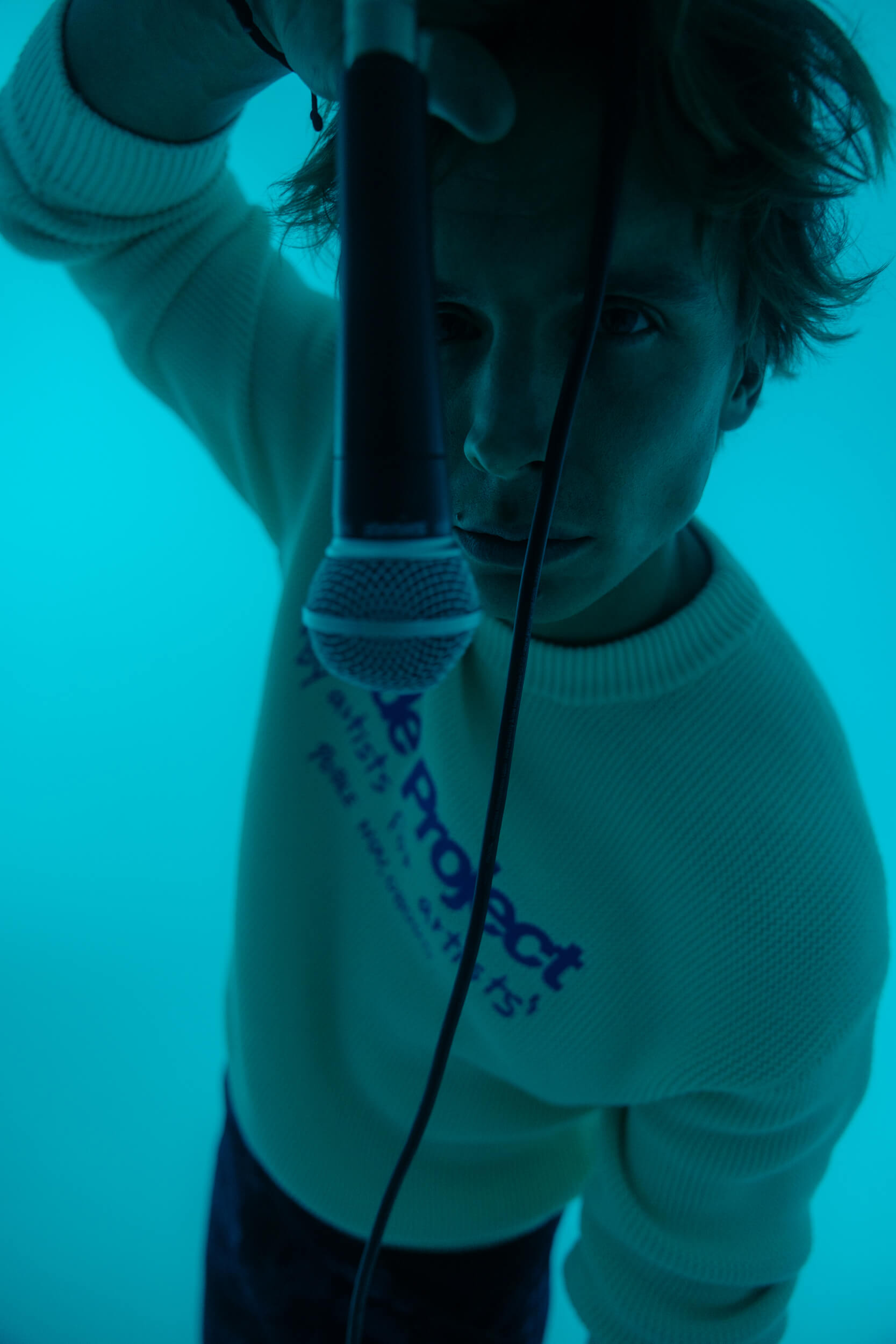
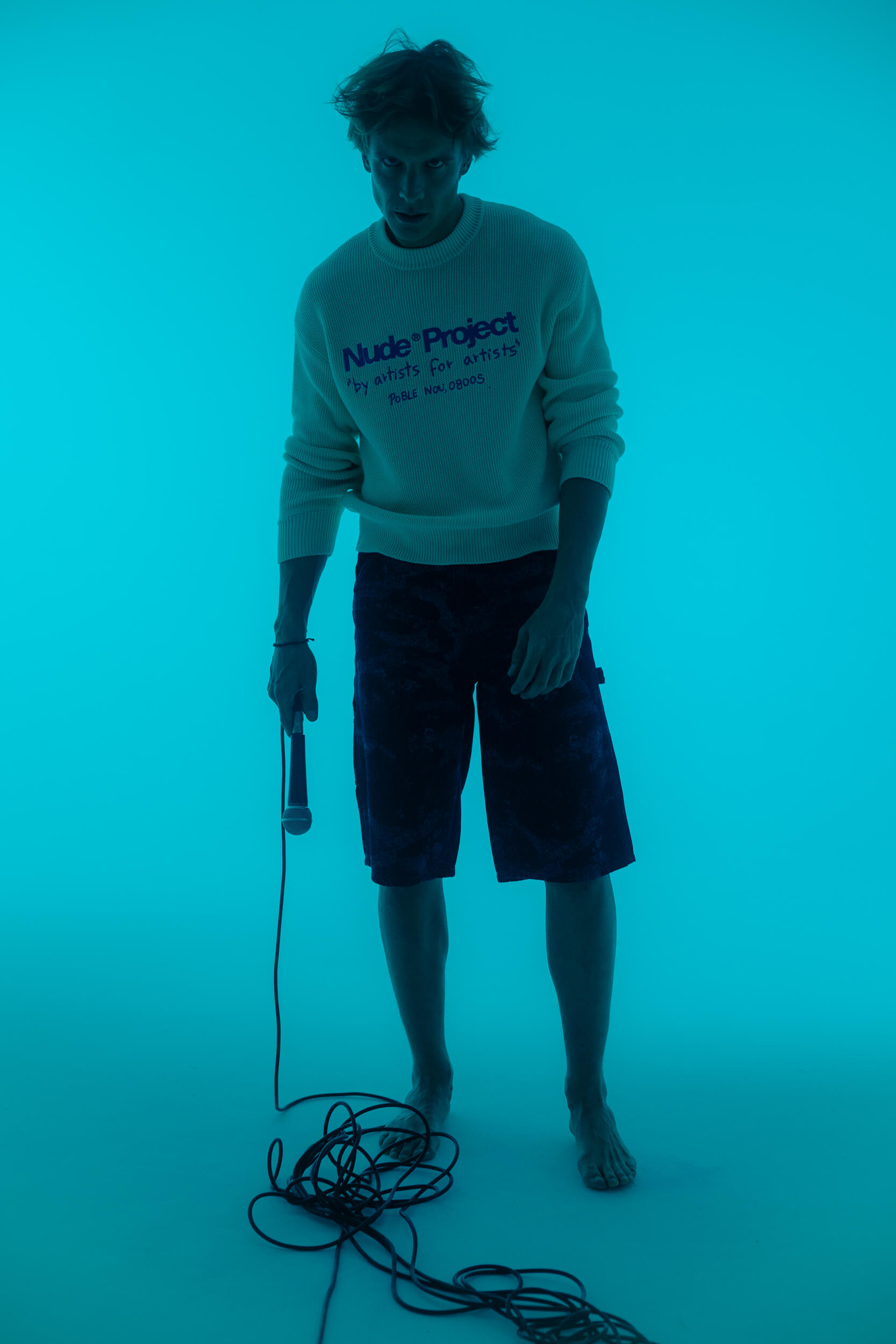
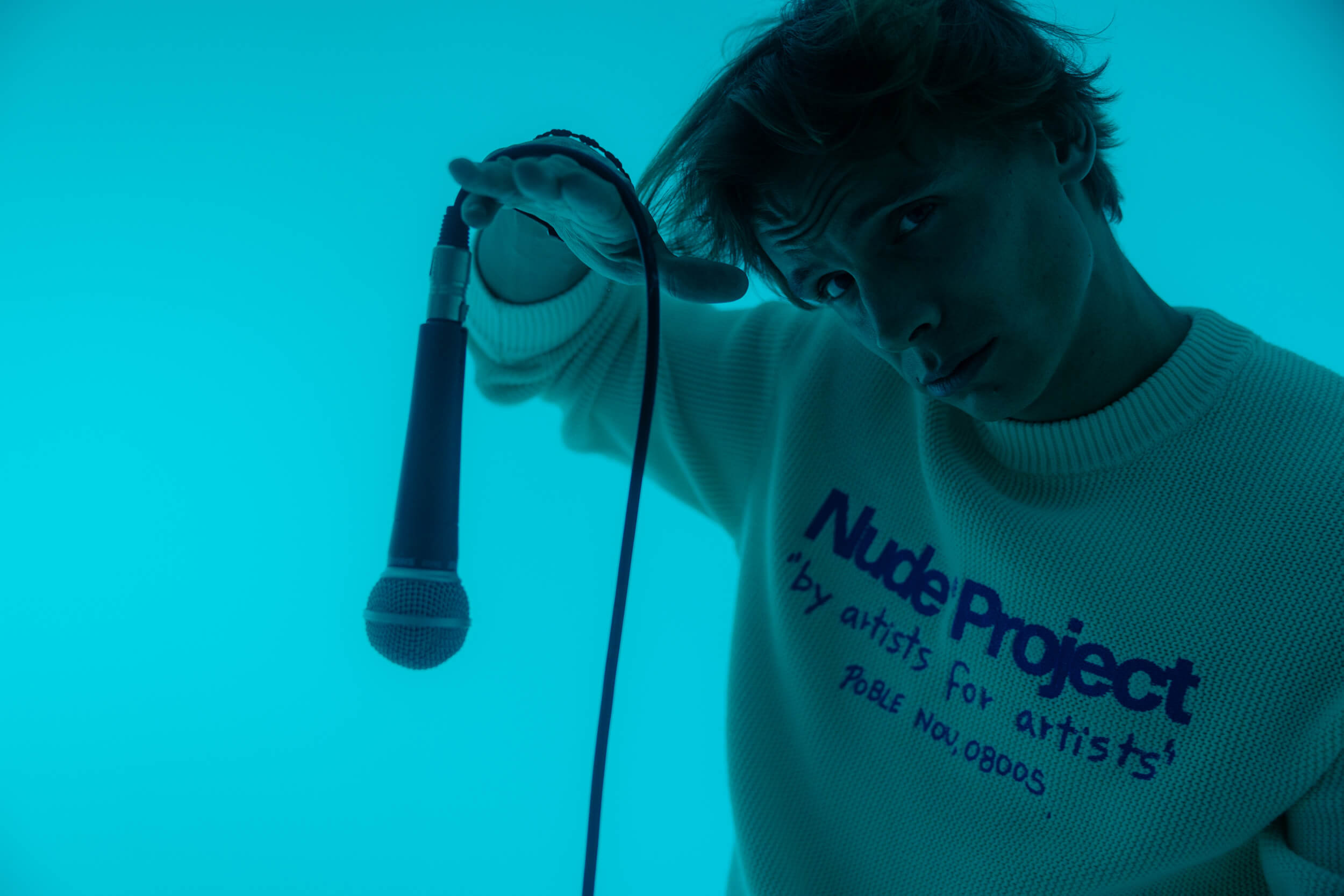
In “Prophecy” instead you interpret Manfredi, a central role in an intense and visionary film. Who is Manfredi and what kind of story is told through him?
Manfredi is once again an antagonist. I like the fact that lately they make me play the villains in films, it’s beautiful because I’m getting to know myself much more by highlighting the dark part of me. I think that all of us inside have a demon, in the Greek sense of the term, the daimon, which gives us impulses, which takes us from one side to another in life, which is our animalistic part.
So, Manfredi is the antagonist of the story who wears, just like Piero, a social mask, that of success. He wants to show others that he made it, he wants to teach others how to be a “business angel“, the angel of business. It’s incredible how this film contains important and current messages, starting from Manfredi who represents modern society: he, for example, gives fifteen seconds to people to capture his attention, just like today’s society that grants you very little time to show who you are. But it doesn’t work, it’s not enough. Speaking of time, let me give you a concrete example: at this moment I’m in the middle of a van vacation in Mallorca, and only now I’m understanding that I’m living, only now that I’m having time for myself.
I like to imagine this scene: we run very fast, our body is going at 50 per hour, but our soul can’t follow that speed, and not because it’s slow per se, but because it needs time to breathe. Then, when you stop, the soul catches up with you, and you feel bad because you discover that there was neither synchrony nor synchronicity between the speed of your body and that of your soul. The longer this detachment lasts, the deeper the pain.
In the end, it makes you smile but also makes you think that Manfredi steals from Giona the idea of a startup, and Giona to make himself vigilante and champion of justice, creates for himself and wears a newspaper mask on which there’s Manfredi’s face. But the devastating thing is that the real man with the mask is not Paperboy, but is Manfredi: Paperboy is just a young and brilliant boy who has to wear a “concrete” mask to fight against a man who instead wears a social mask. This makes me think of the Italian situation, where brilliant young people have to move to other countries because at home they have no space, or they only have “fifteen seconds to be seen“. This battle between Manfredi and Paperboy is precisely the battle of masks, with a vague reference to the Commedia dell’Arte if you will. The film, in short, is very well written, represents a cross-section of society of highest quality.
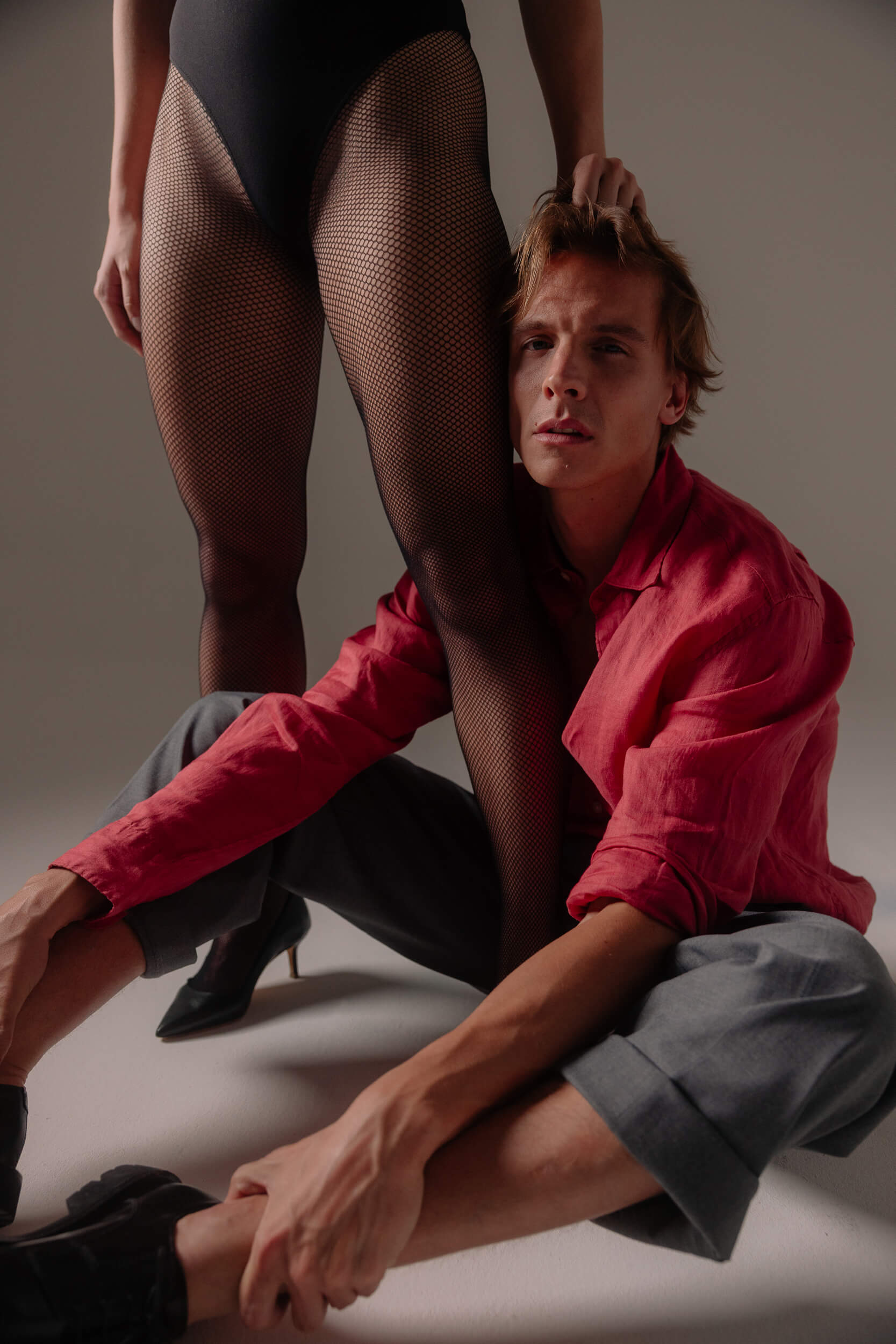
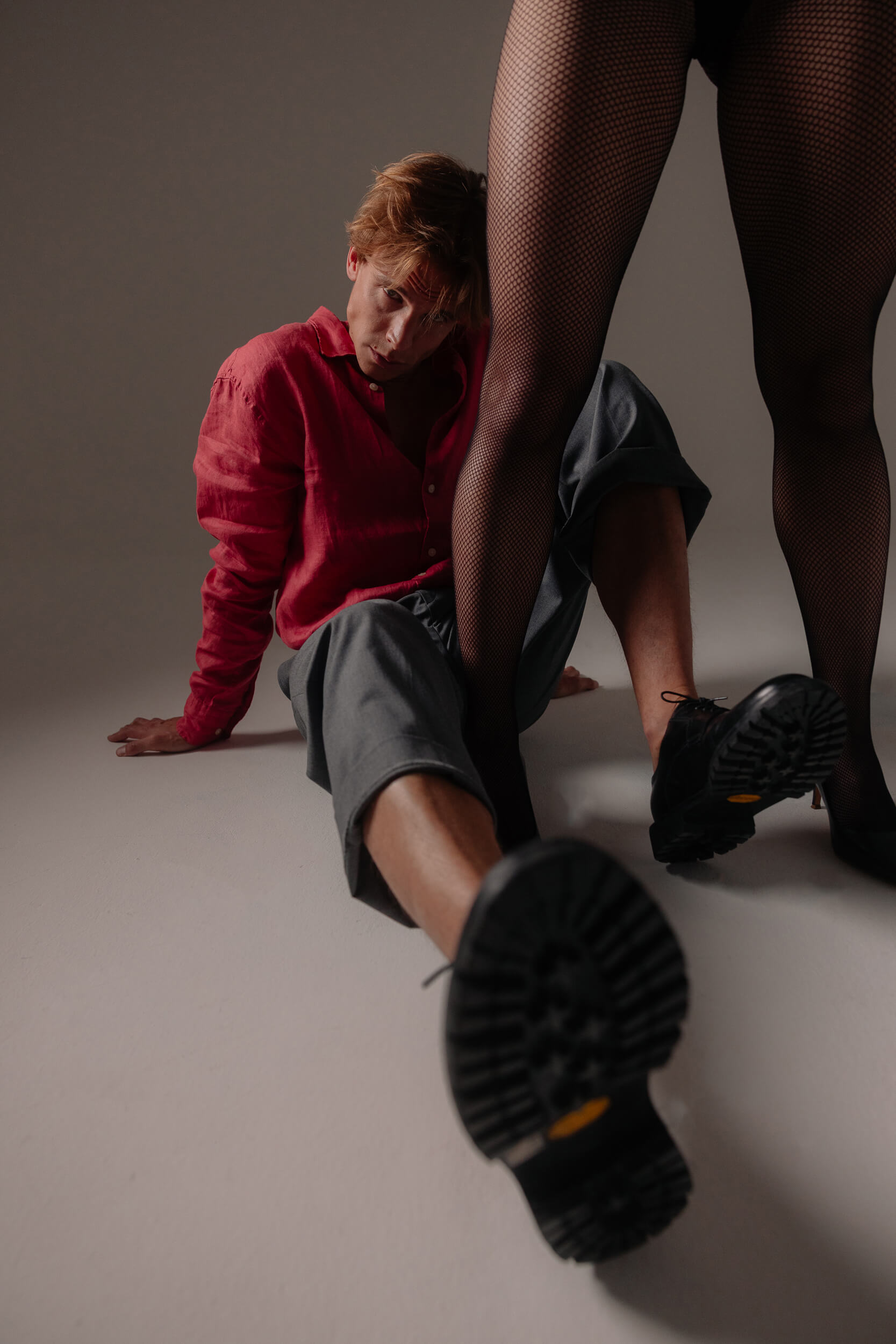
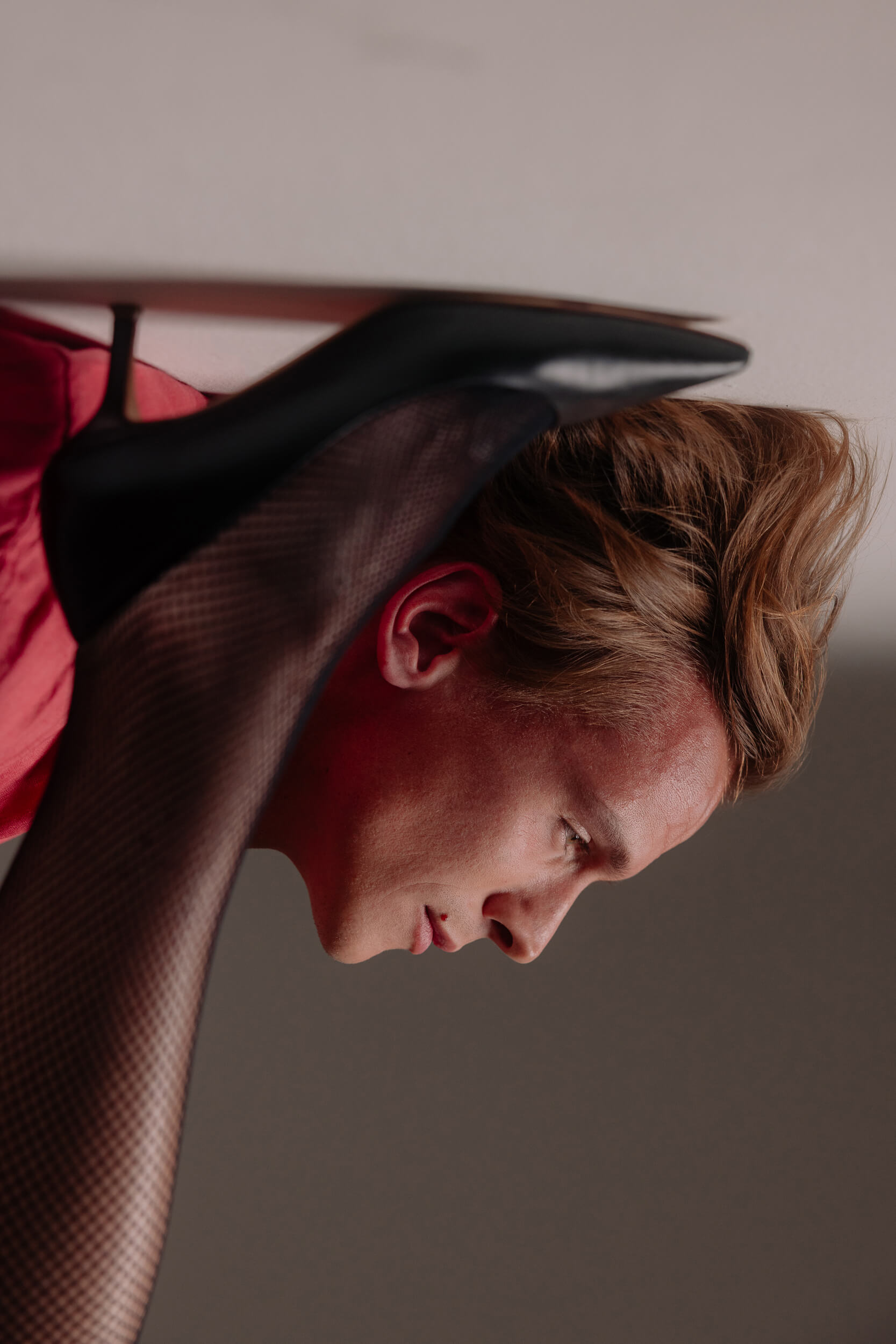
“Only now I’m understanding that I’m living, only now that I’m having time for myself.”
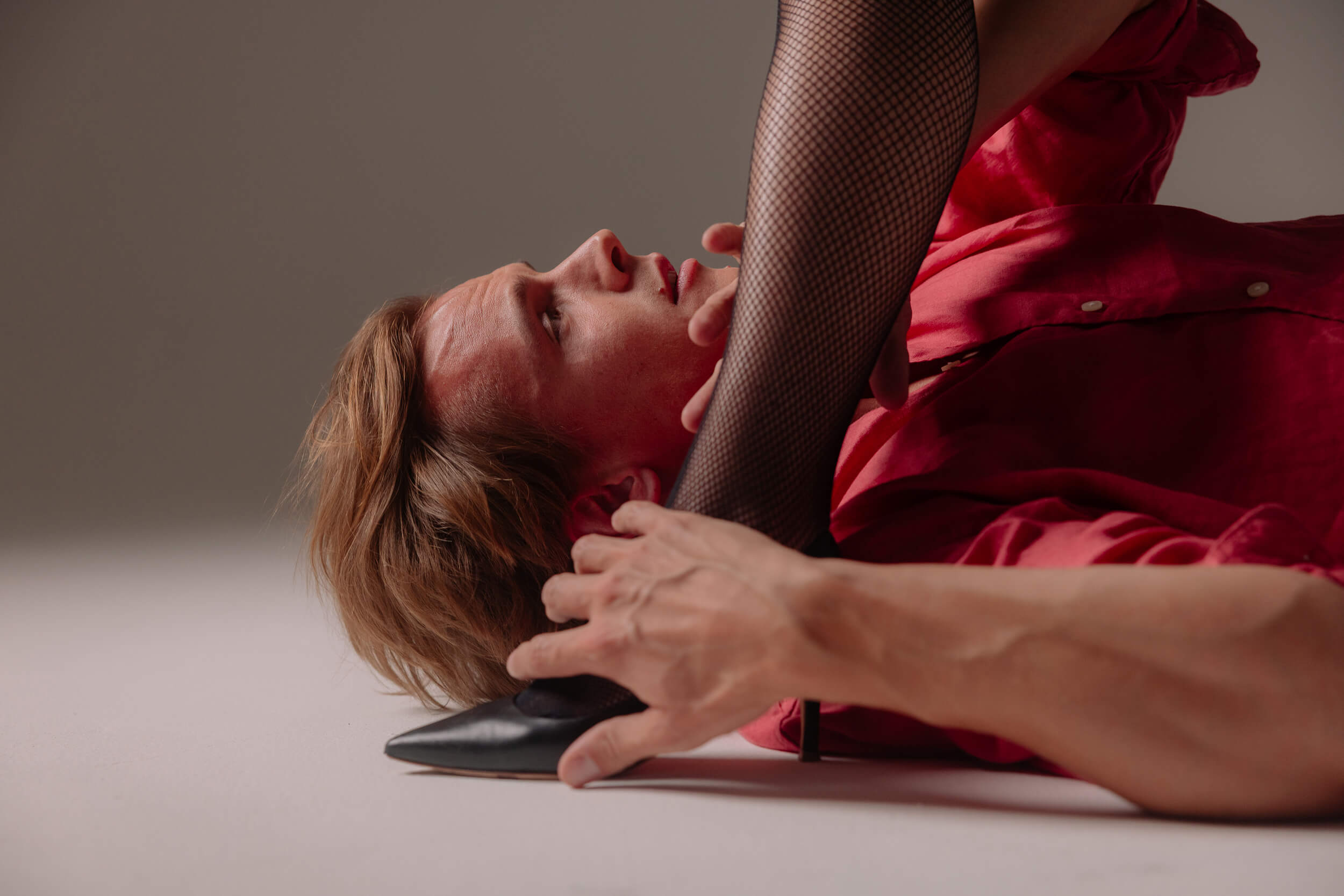
But how do you choose your projects? What makes you say yes and what makes you say no?
The human side, first of all, and then the artistic side: obviously, I must like the character.
The two things go hand in hand: I might really like the character, but if then there aren’t human beings who have dreams and whose eyes shine included in the project, it’s not the same thing for me, that project no longer convinces me. So far, I’ve always worked with people in whom I perceived life, passion, despite, in some cases, the difficulties, maybe the low budget. In the projects I’ve worked on, teams have always been created and I love team games. In football, for example, why do sometimes the less renowned teams or those that don’t have hundreds of millions of euros win? Because they are an amazing team with an amazing coach. The team always wins in my opinion, and in films you can clearly perceive it.
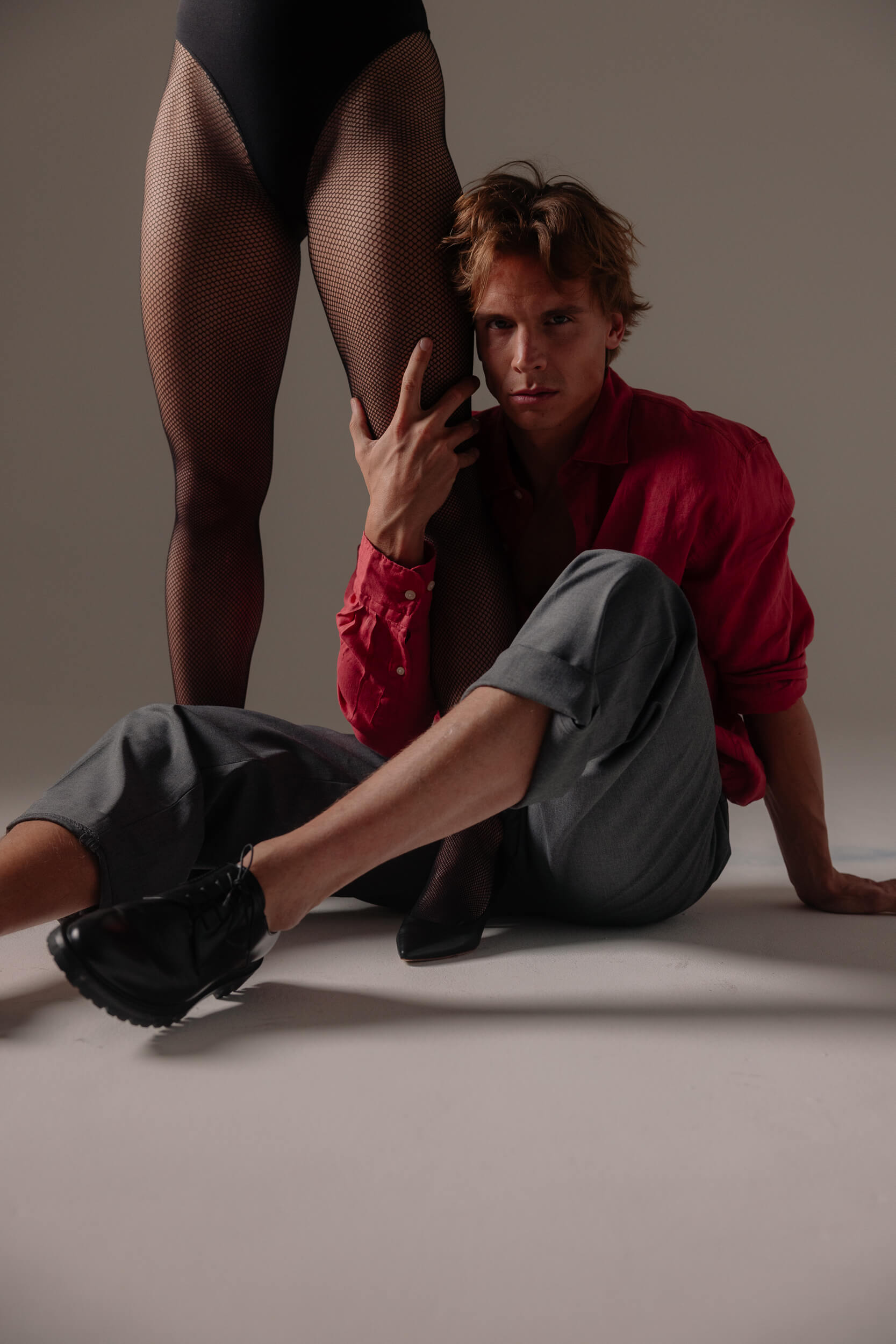
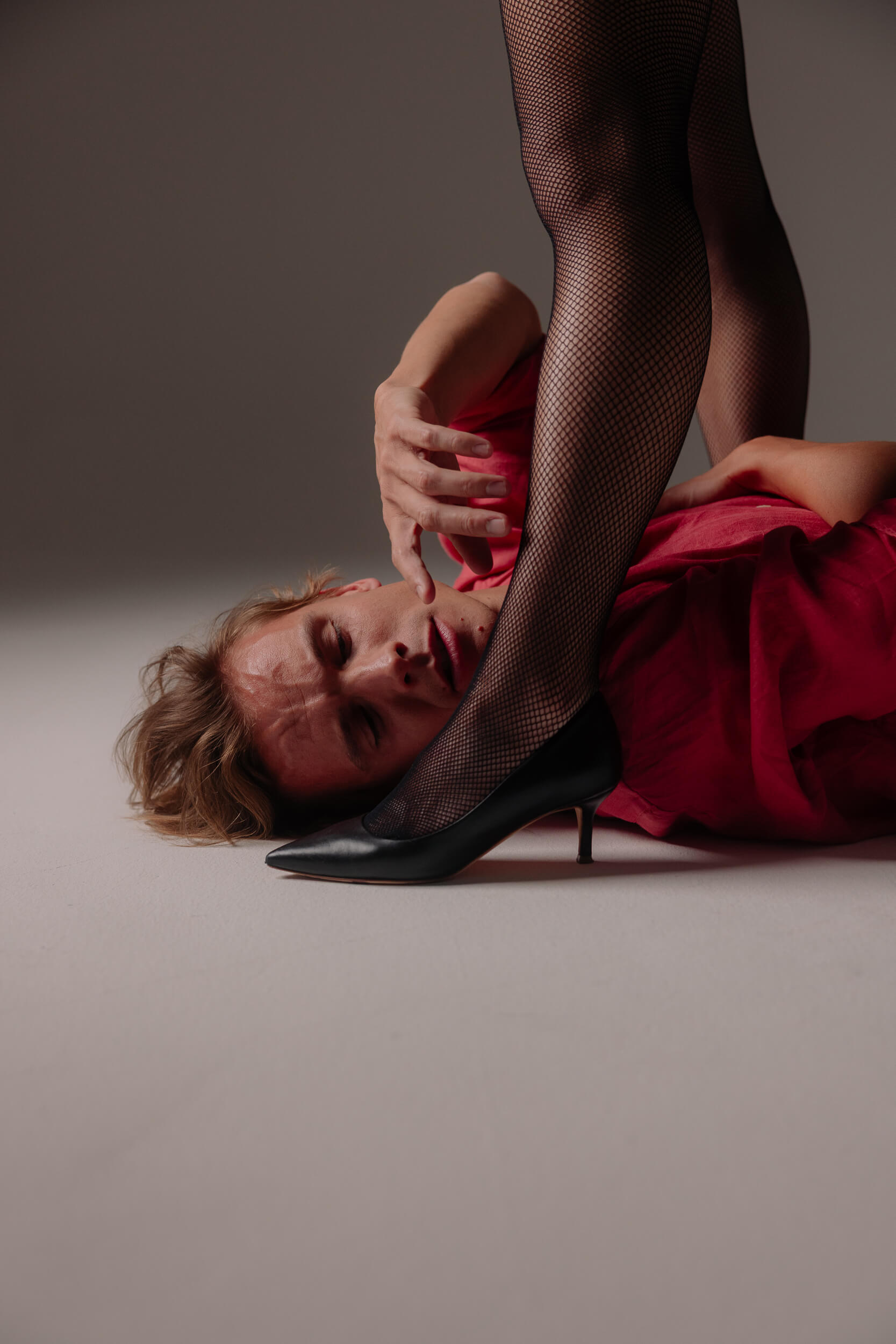
You’ve worked in very different contexts, from Italian sets to American ones. What differences have you found in the way of making cinema between Italy and the United States?
In America cinema is a business, which is not necessarily a bad thing. In Italy, for example, it’s often not considered a business and people think more in terms of: “Let’s make a film, let’s make something artistic“. But it’s not enough, people need to be paid, seriousness is necessary even in art. In Italy it’s beautiful because there’s passion, there’s the beating Latin heart, there’s versatility, knowledge and creativity, but we should use this brilliant side of ours, value it and unite it with the business side.
Let’s not forget that cinema is a job, and not just art.
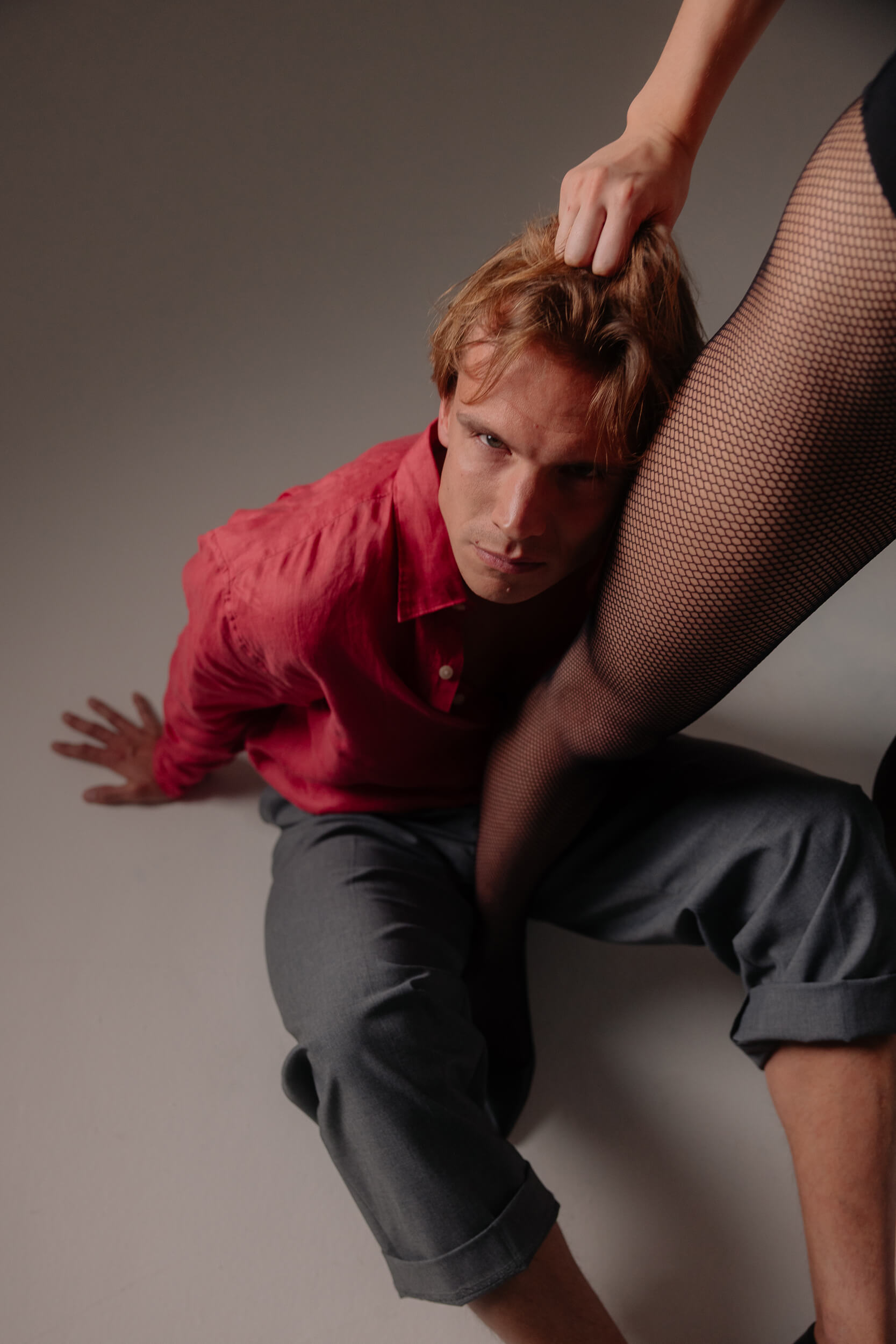
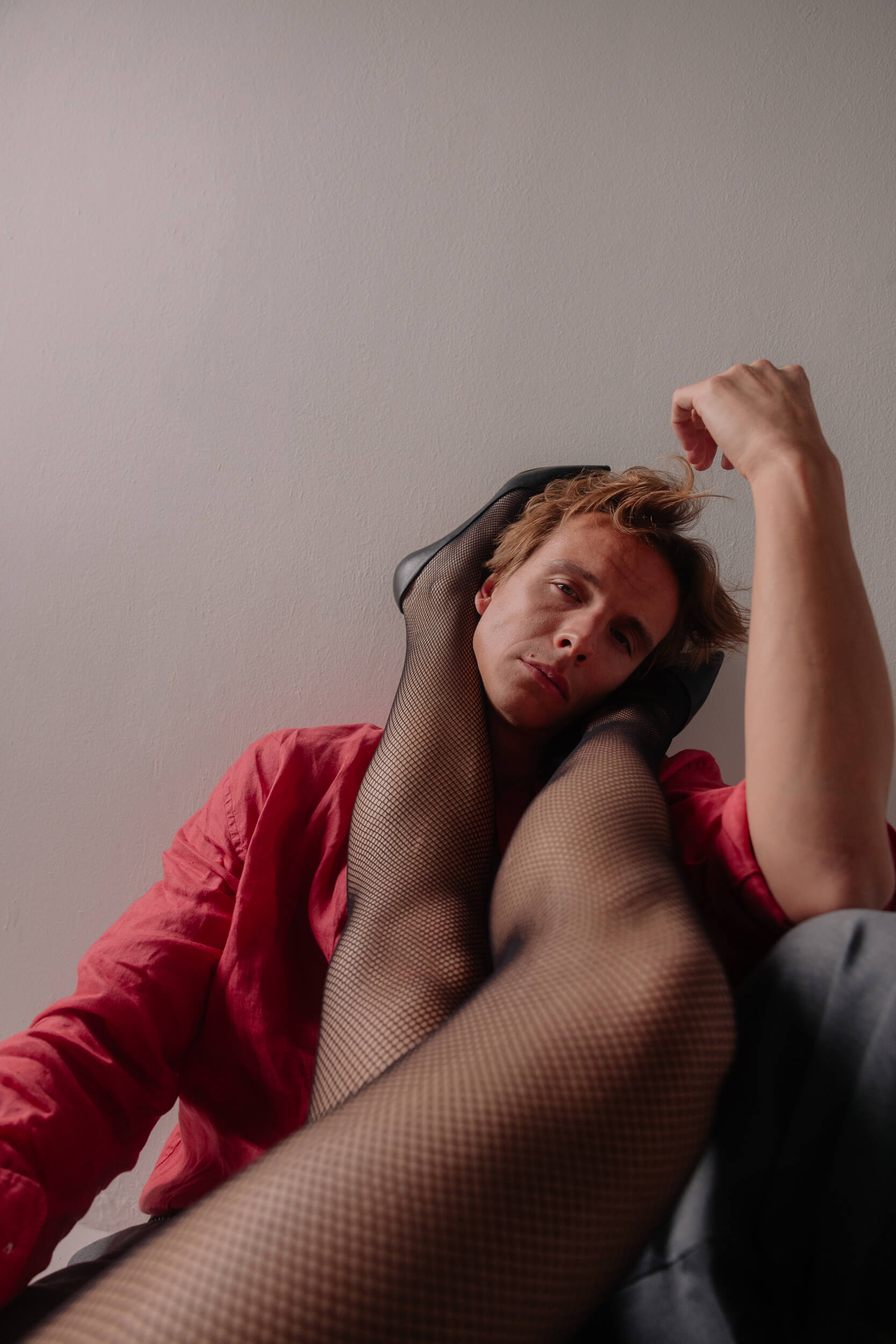
It’s that often and unfortunately we have this stereotypical idea of work as something that can’t please us in any way, by definition. The actor’s job, therefore, who acts because he’s passionate about acting, some find it hard to consider it “a real job”.
Exactly. In France instead, for example, there’s a superior balance from this point of view, because there the artistic side of the profession is as important as the social one: there are state subsidies for discontinuity for actors, which in Italy we can’t get and it’s crazy. In France, instead, if a person loses their job, whatever it is, they have subsidies, while in Italy actors don’t have unemployment benefits, evidently because theirs is not considered a job. I really wonder why… A country should value artists, because it’s the artists who since the dawn of time put themselves at the service of society to collect, re-elaborate and transmit what is happening in the contemporary world in correlation to what happened before, in view of a near future.
You can’t, in fact, improvise being an artist, because artists have a certain degree of social responsibility.
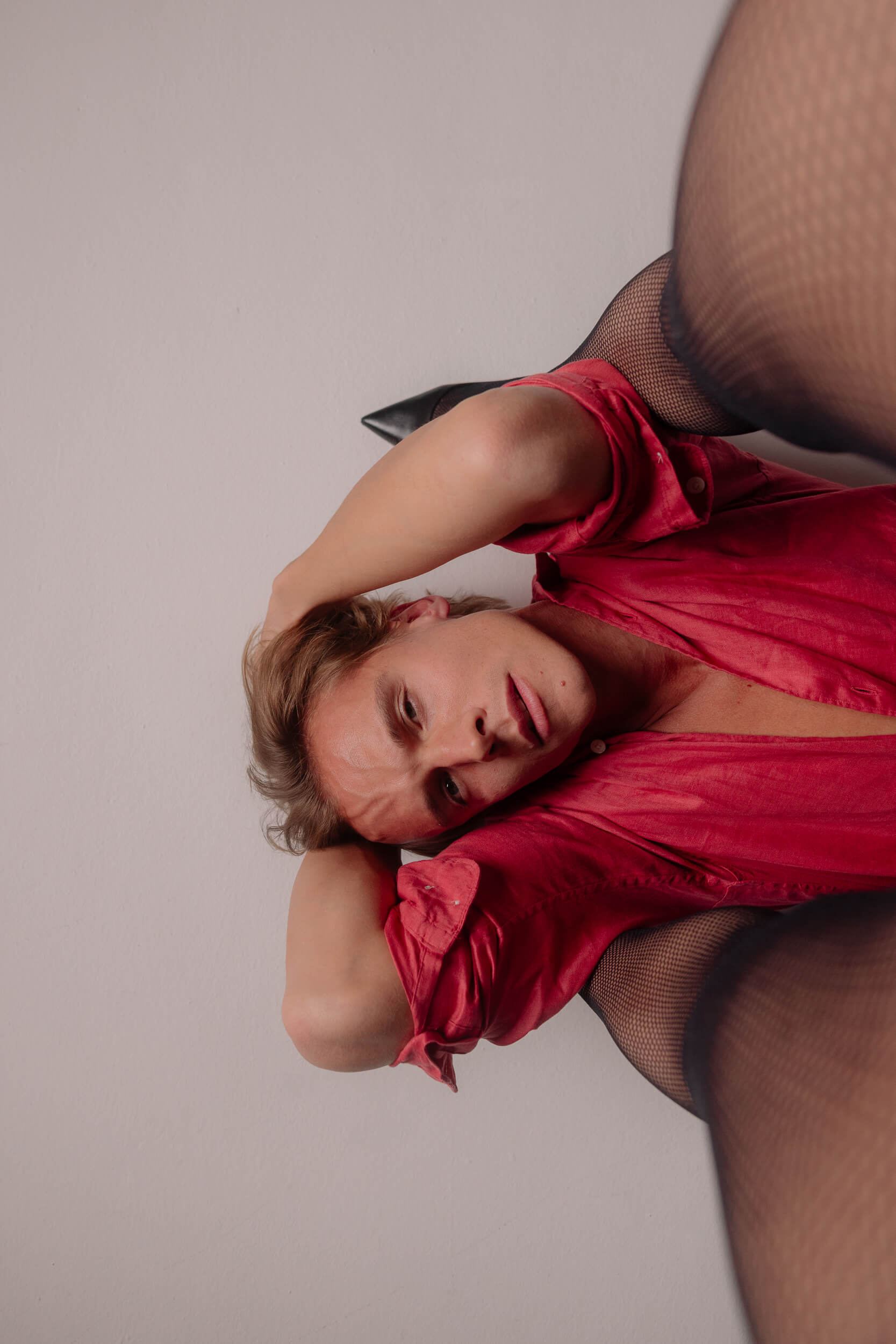
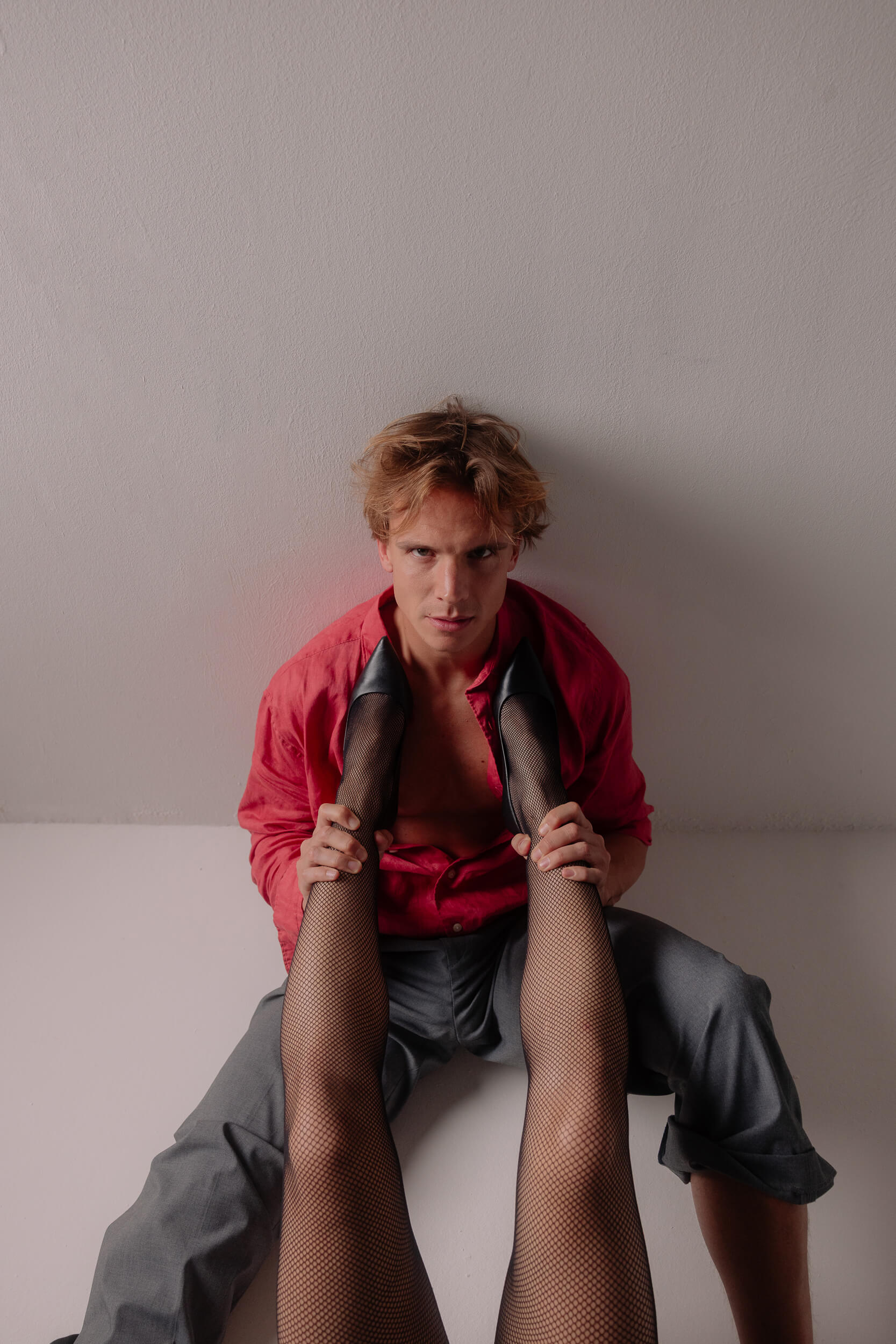
“…it’s the artists who since the dawn of time put themselves at the service of society to collect, re-elaborate and transmit what is happening in the contemporary world”
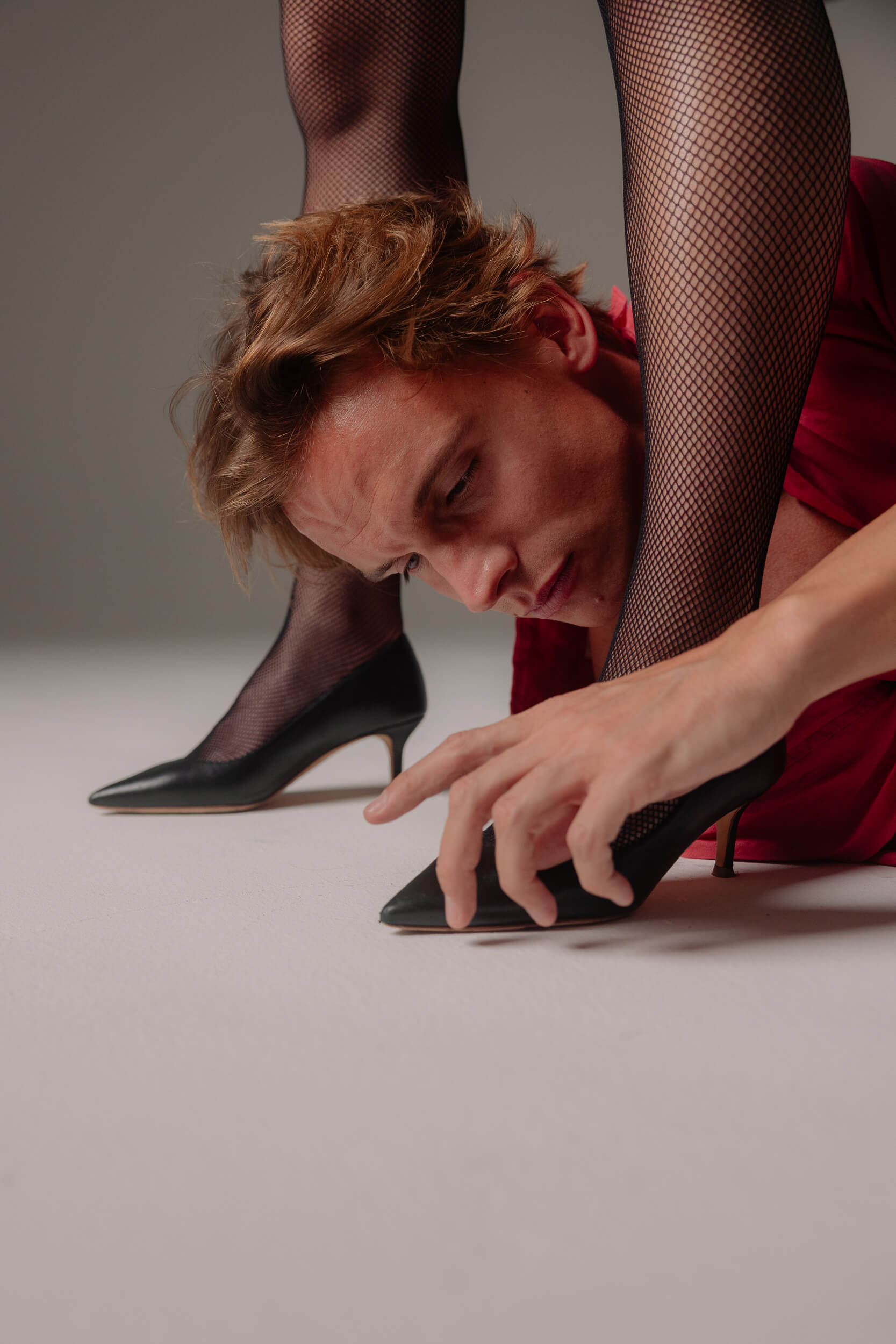
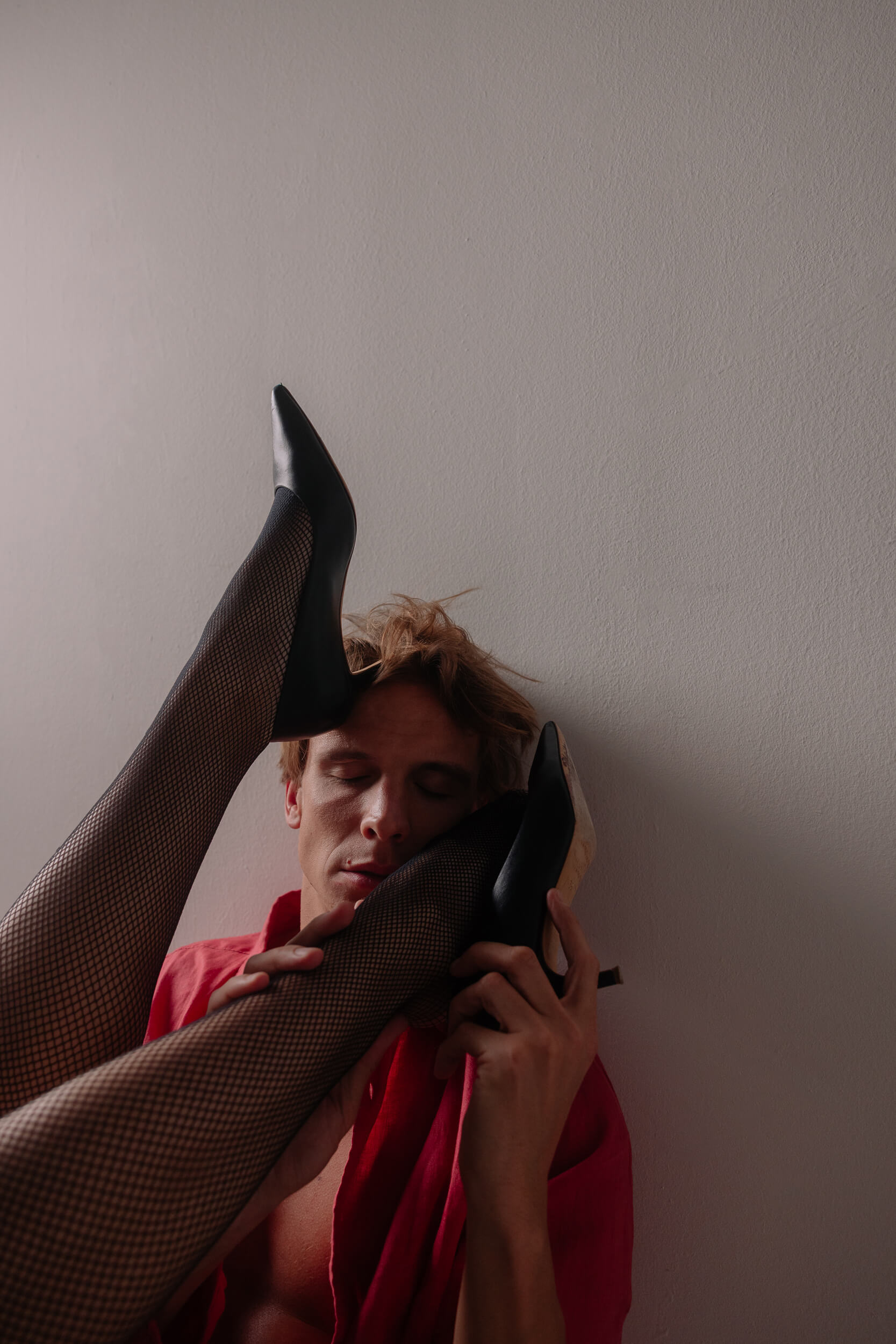
Just as you can’t improvise being writers, and you can’t publish anyone who has a certain number of followers on social media… This very widespread phenomenon today comes to mind.
Yeah, that makes me very angry. For 15 years I’ve had a publishing house, Giuliano Ladolfi, and I’m a colleague of yours, I’m a freelance journalist. For this reason, I understand very well what you’re saying. It’s necessary to set boundaries that derive from a social and artistic study of modern society. If we put films, series, books in the hands of unqualified people, the content spread can never be really interesting, because it comes from people who are not prepared to produce or transmit interesting content in the correct way.
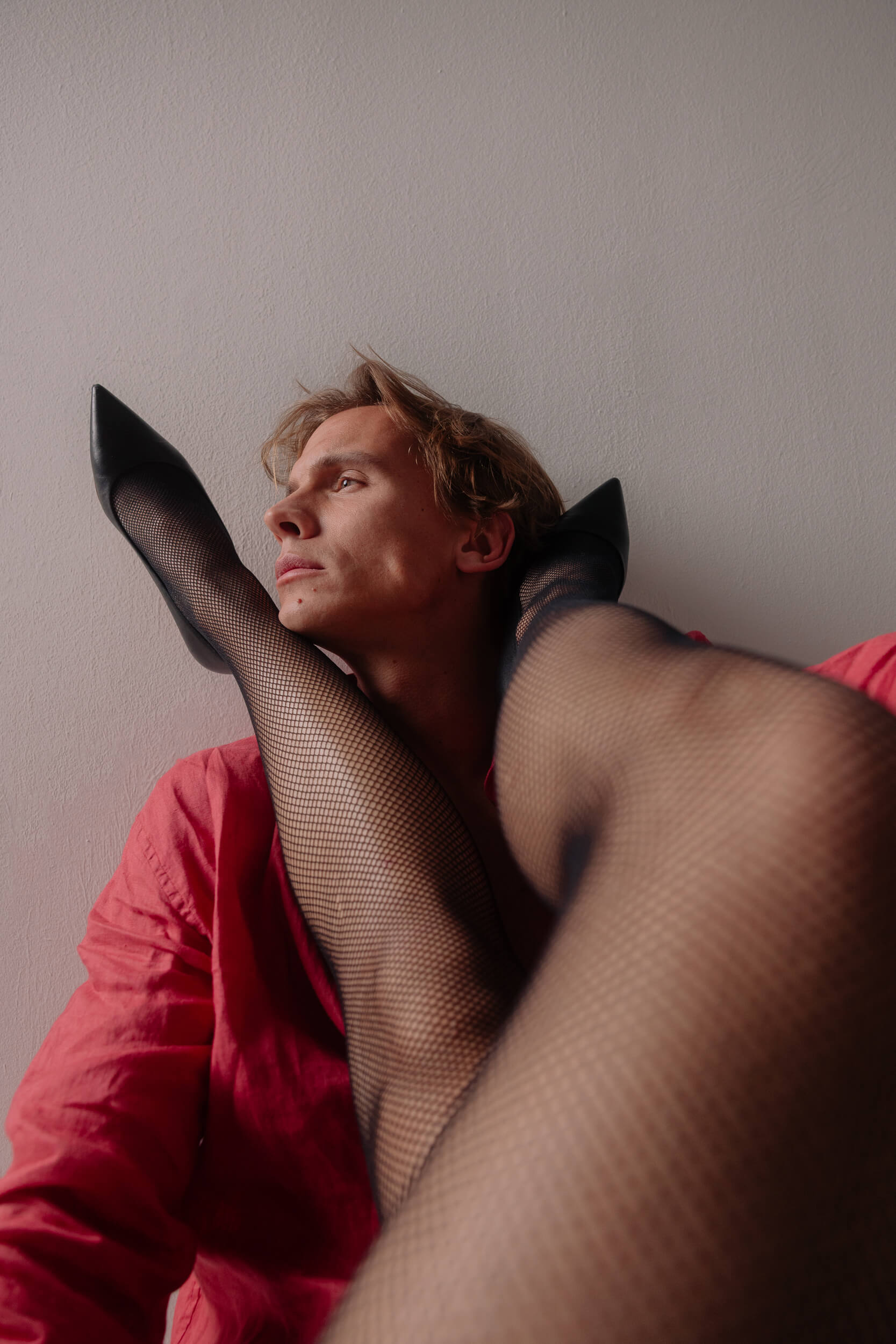
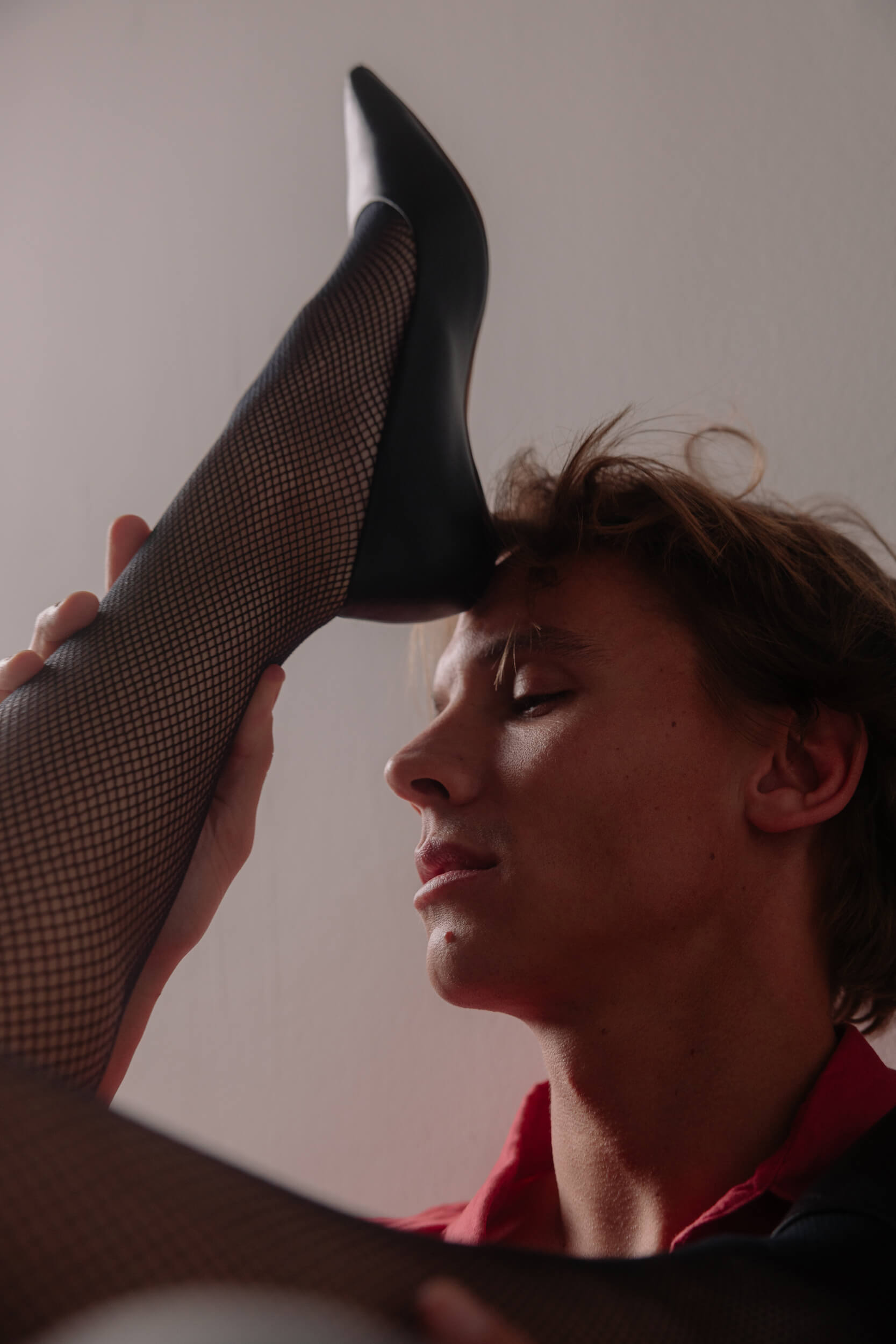
Have you ever thought of going behind the scenes, maybe directing or writing something of your own?
I’ve done it! Recently, I staged a theatrical show in Gorizia called “Tra due fiamme” (Between Two Flames). It’s an adaptation of a novel by Umberto Zuballi, I wrote the screenplay, I took care of the direction and I also acted: I loved it to death. We realized this show in collaboration with the Friuli-Venezia Giulia region, because Gorizia is the European Capital of Culture 2025 and we entered the GO!2025 events. They proposed that we reproduce performances of the show in schools throughout Friuli and I’m super proud of our work. I had to deal with really wonderful people in this show, great people who push art.
I also directed three music videos, because I’m about to release an album I’ve been working on for more than a year together with my producer, Francesco Arpino. It’s a pop EP with a touch of country and rock.
I mean, direction is a world that fascinates me a lot: when I’m sitting in the chair and looking at the monitor, I get excited. And I love getting excited.
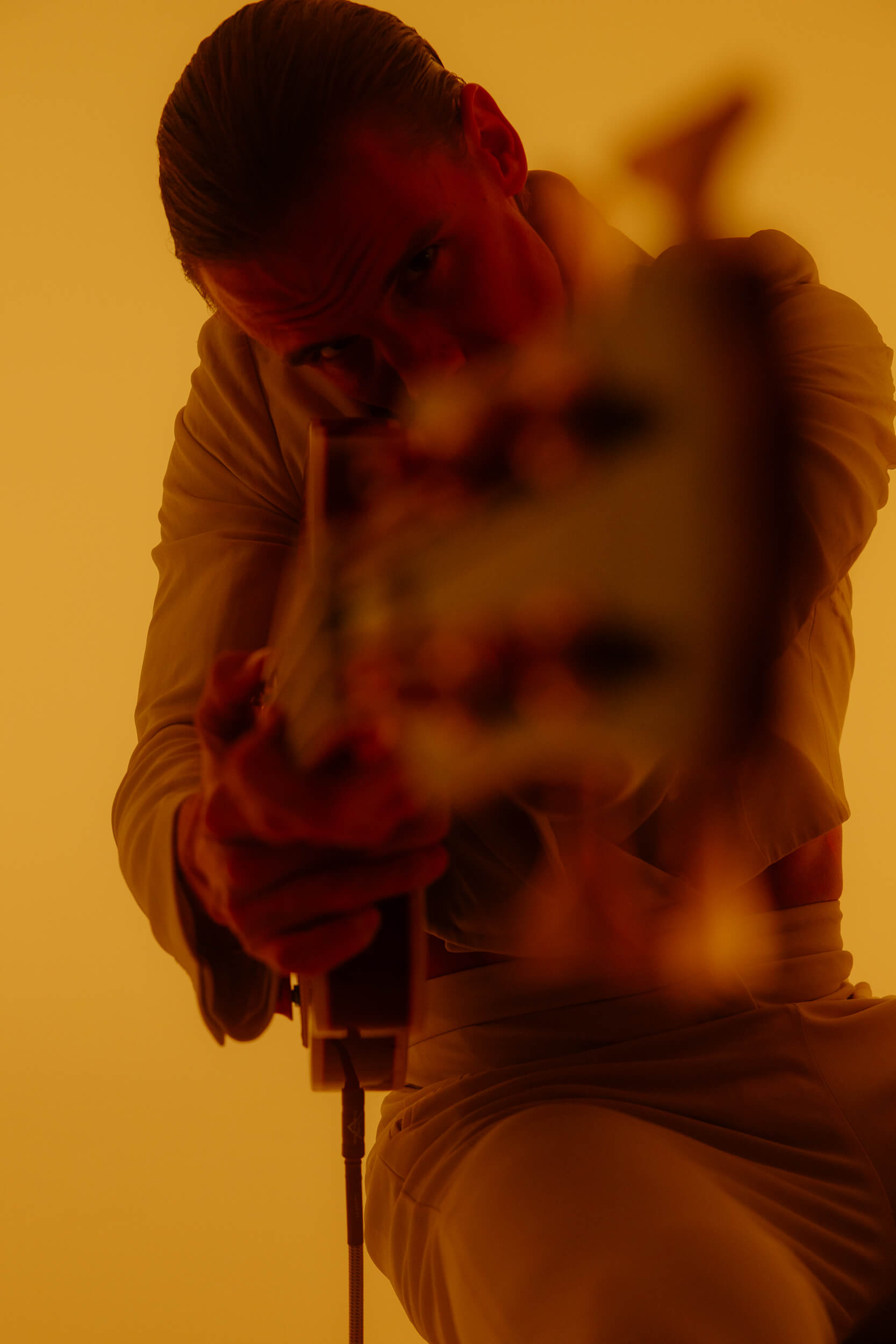
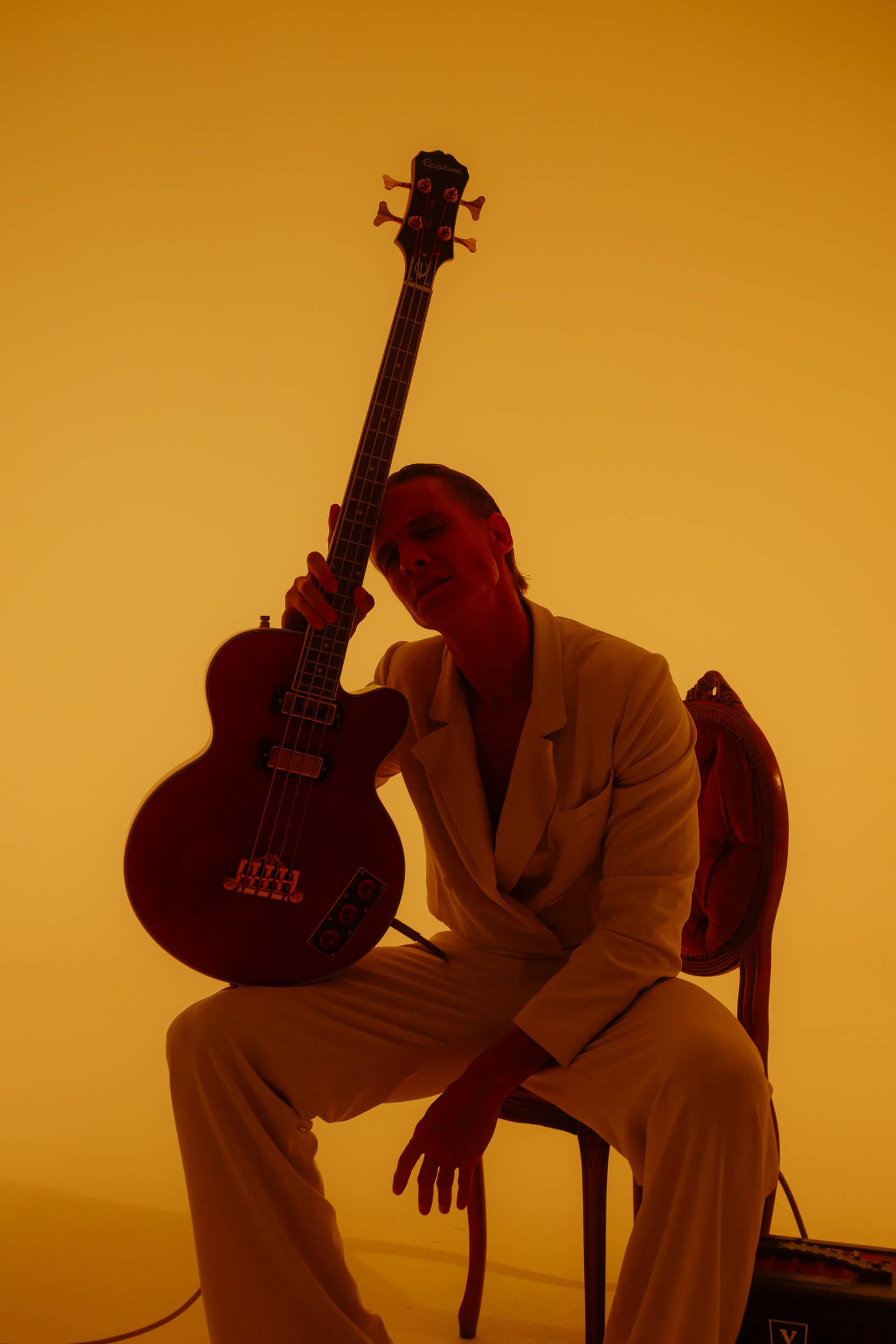
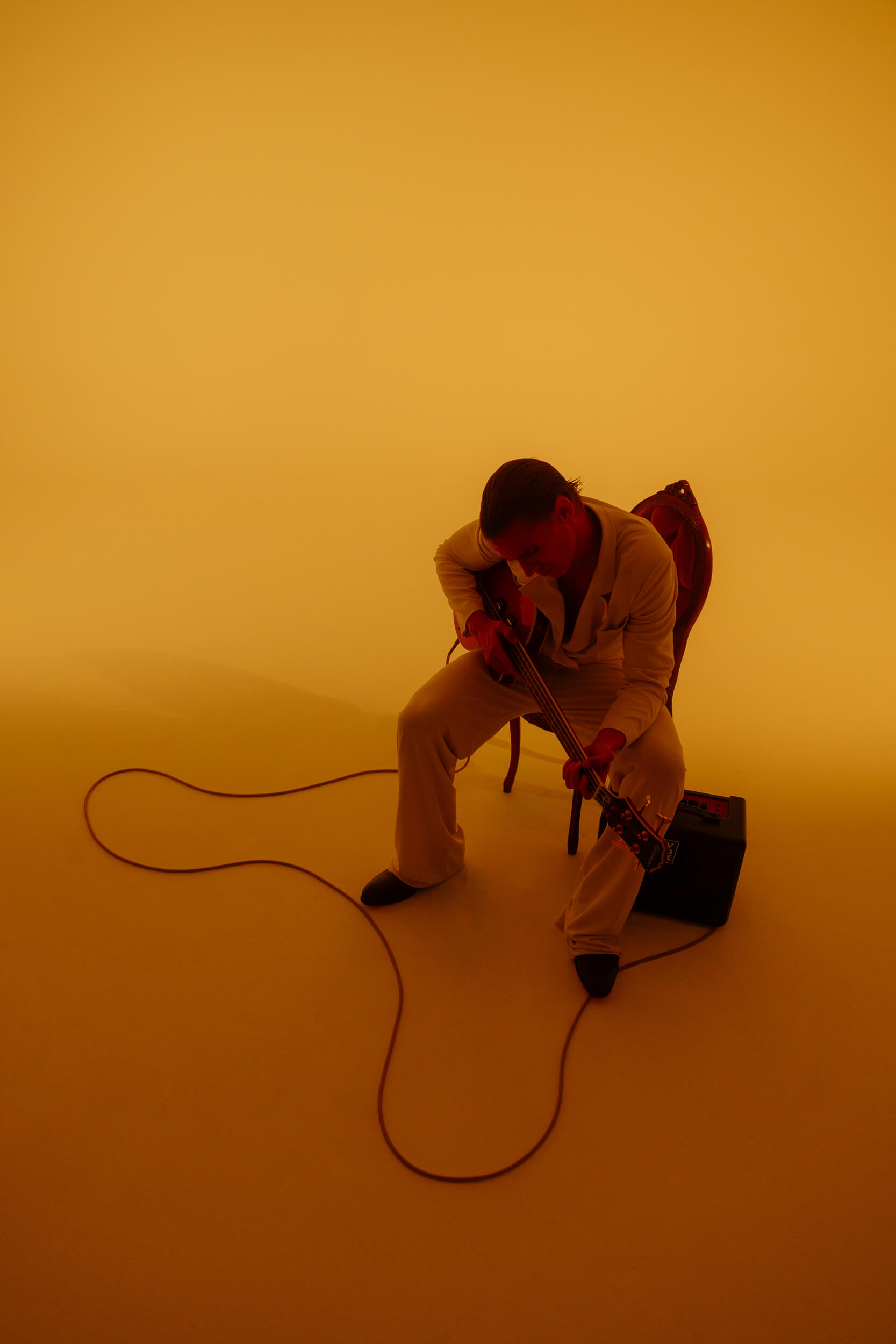
What was your greatest act of courage?
Not only forgiving, but loving without limits people very close to me who hurt me badly.
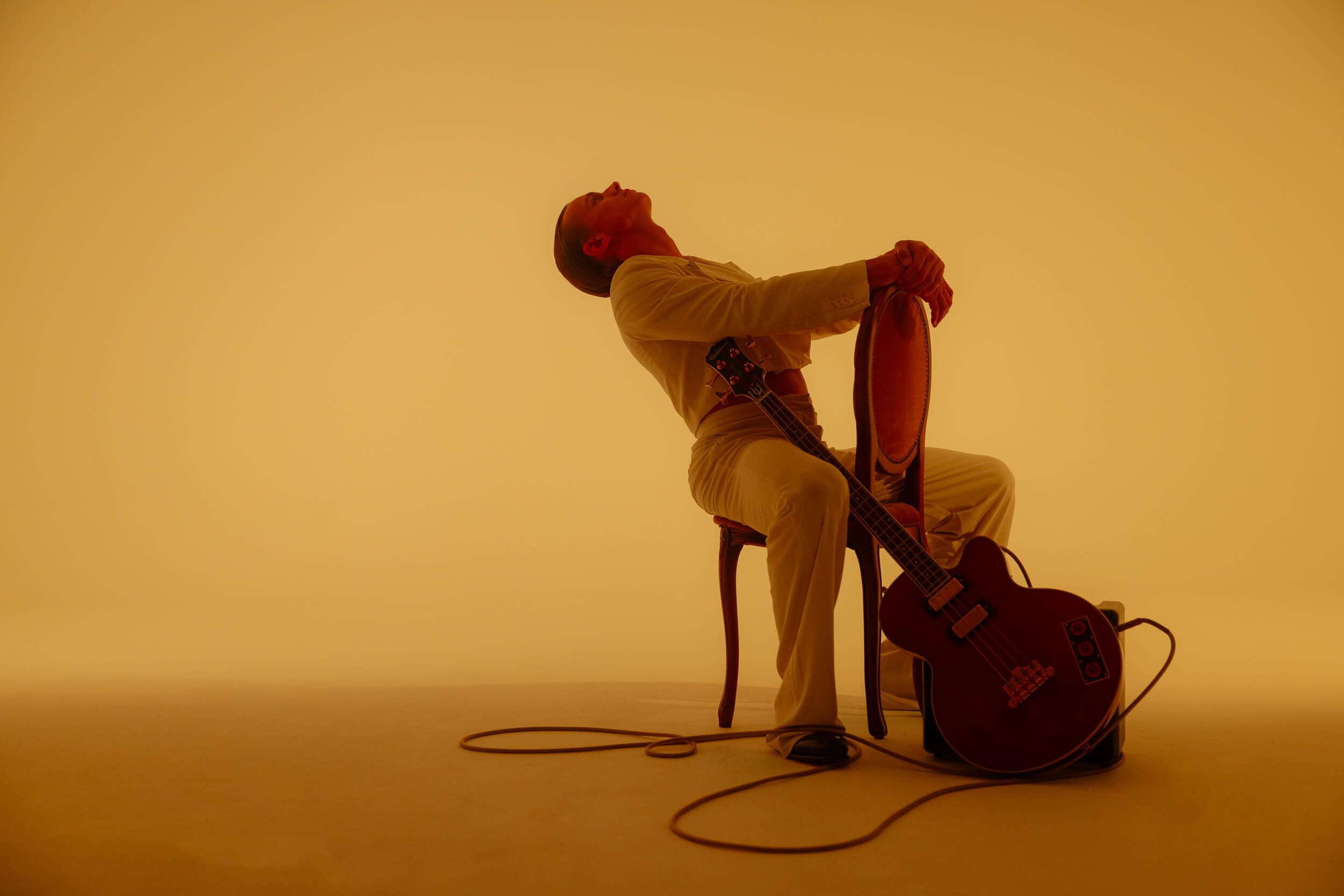
What’s your biggest fear instead?
You know, I like to know myself and others and living an empty life would be the worst that could happen to me. My biggest fear, therefore, is arriving at the end of life with bitterness, with the thought of not having done enough for myself and for others, especially for others.
My biggest dream, after having a family and children, is to be able to share and transmit, especially to young people, confidence. They often invite me to speak in schools, which I love doing. When I was a teenager, I dreamed that someone would take me by the hand and tell me: “Everything is fine“. Yesterday I was talking to a 12-year-old girl who wants to be an actress: I sensed she wanted me to tell her something, and I on one hand didn’t want to shatter her dreams, on the other hand I also didn’t want to make her live ten meters above the earth, deluding her; so, I told her: “Always ask yourself why, why you do things, why you go in a certain direction, and answer yourself with the greatest transparency and honesty, for yourself and not for others”. The great difference lies in the question, rather, in the right question. I really enjoyed talking to her.
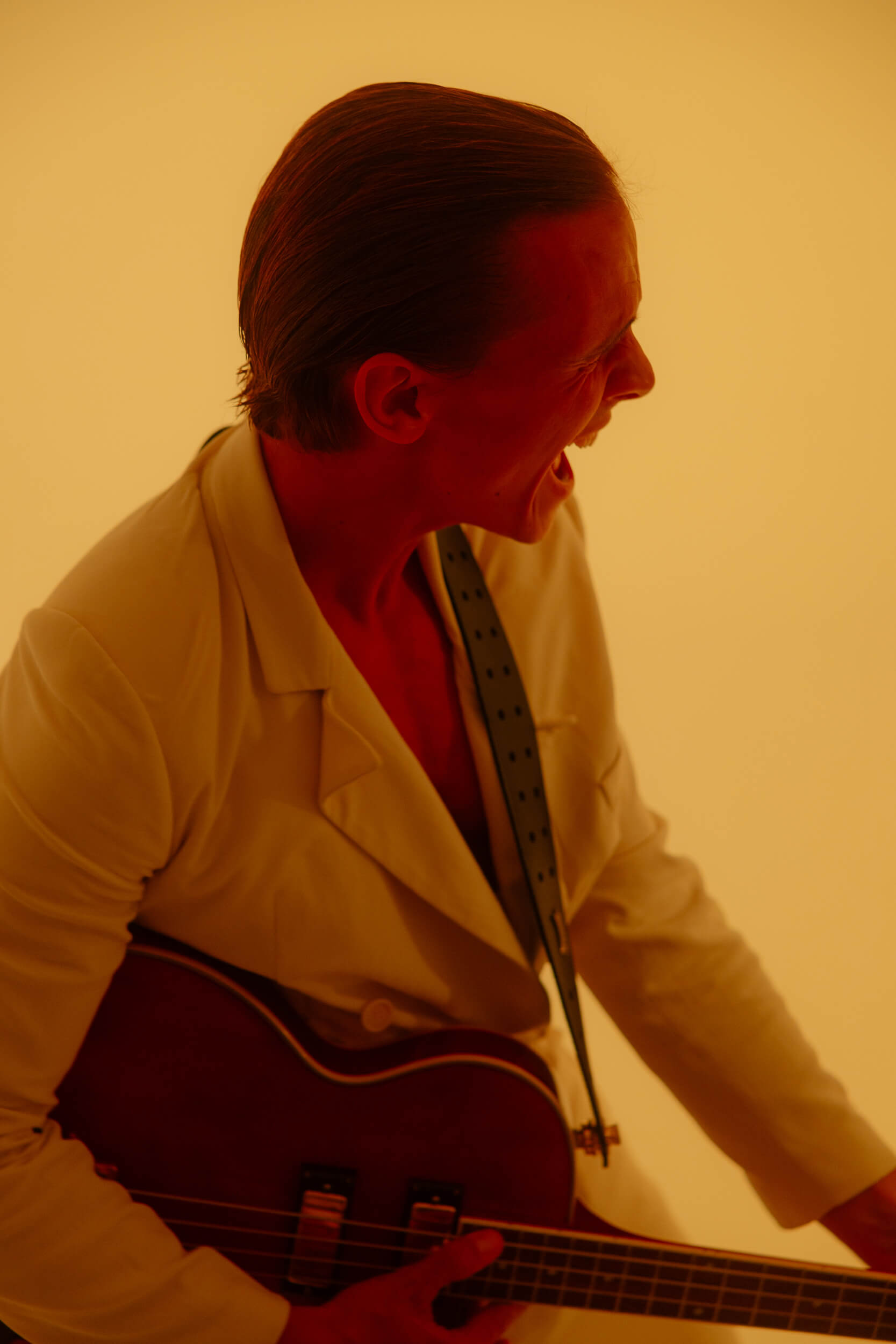
“The great difference lies in the question, rather, in the right question“
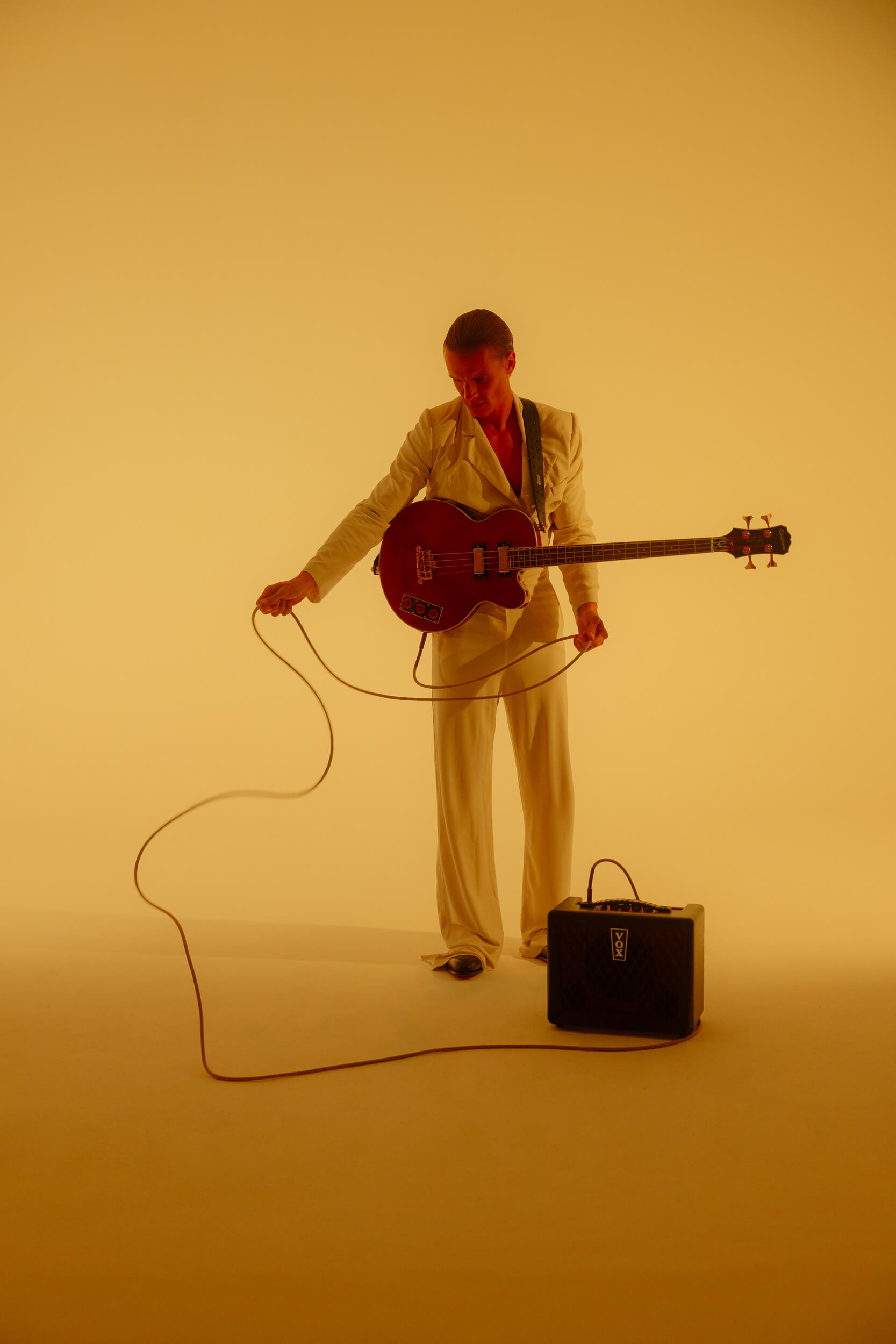
A beautiful encounter, surely the girl won’t forget you. But speaking of questions, self-awareness and awareness of others, what does it mean for you to feel comfortable in your own skin?
You’re managing to make me cry on the phone, with emotion obviously. These are psychotherapy questions, which is fundamental and I speak from personal experience, I go to a psychologist who helps me a lot.
What is skin? Skin is not a simple covering, it’s an organ. Skin is what puts you in contact with the world, what makes you feel hot and cold, the chills of emotions, the sensations of touch, of kisses and caresses from others. Skin is the place of contact with life, it’s everything. Feeling good in your own skin, therefore, means first of all becoming aware of what skin itself is. And it’s not an aesthetic question, it’s a physical and spiritual question: we always see skin as a delimitation, as if our body ended there, but there’s nothing more wrong, skin is quite different. Where are our boundaries? You’re first in one part of the world and then in another, you think of someone and at the same moment that someone is thinking of you and calls you right at that moment… Boundaries don’t exist. Feeling physically good in your own skin is only one of the states of knowledge: there’s another state, the knowledge of ourselves beyond our skin.
I saw a video that showed what happens when the sperm fertilizes the egg: a flash of light is released which is defined as energy that is created at the moment of union. I like to think of it more romantically, I like to think that at that moment the flash of light is the life that is created. But it’s something we don’t understand and that’s the beauty of magic, in my opinion, not being able to understand everything and being at peace with this. In short, feeling good in your own skin means knowing yourself, keeping in mind however that there are many levels of knowledge. Unfortunately, however, we live in the world of the triumph of image, where the only sense we attach ourselves to is that of sight, which is ridiculous.
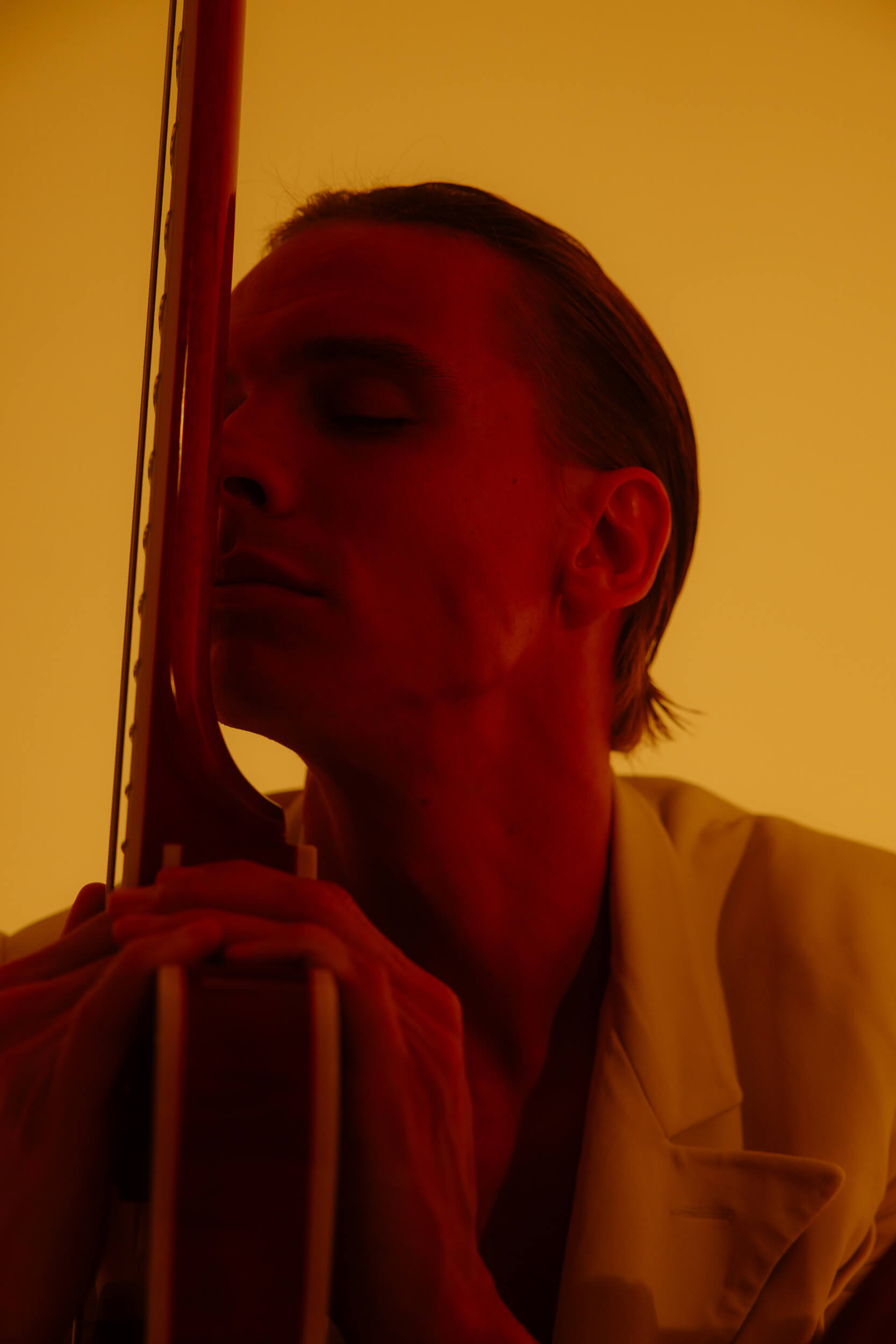
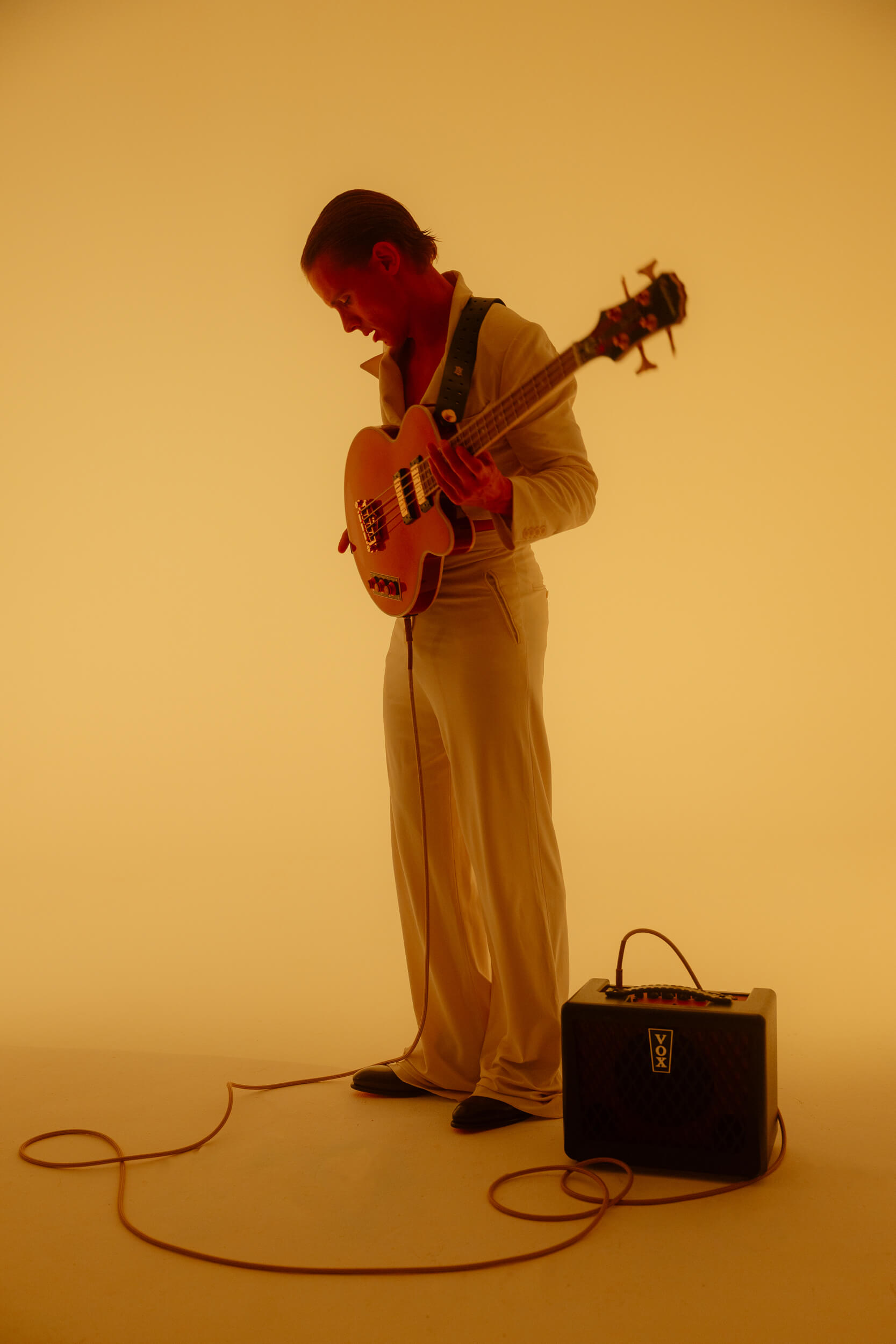
And it’s a waste to live like that.
Now I’ll ask you one last question: what would you like to see outside the window? What’s your happy place?
I would like to see nature outside the window, because I grew up in nature. Specifically, I would like to see a respected nature, including human nature. With everything that’s happening this year in Palestine, from the window I would like to see a global awakening. It’s very difficult, utopian, but my happy place is a world where people give more attention to what really matters, to passing on to others, to loving, to the people we have beside us.
Let’s talk to people, let’s make sure they’re well, let’s open our eyes, let’s look at animals, let’s pay attention to how plants are treated: let’s stop nullifying the senses, closing our eyes and ears and staying in apnea.
In front of me right now I read the sign “Happy Hour“: alcohol at reduced price from 4:30 PM to 6:30 PM. Doesn’t this make you laugh?
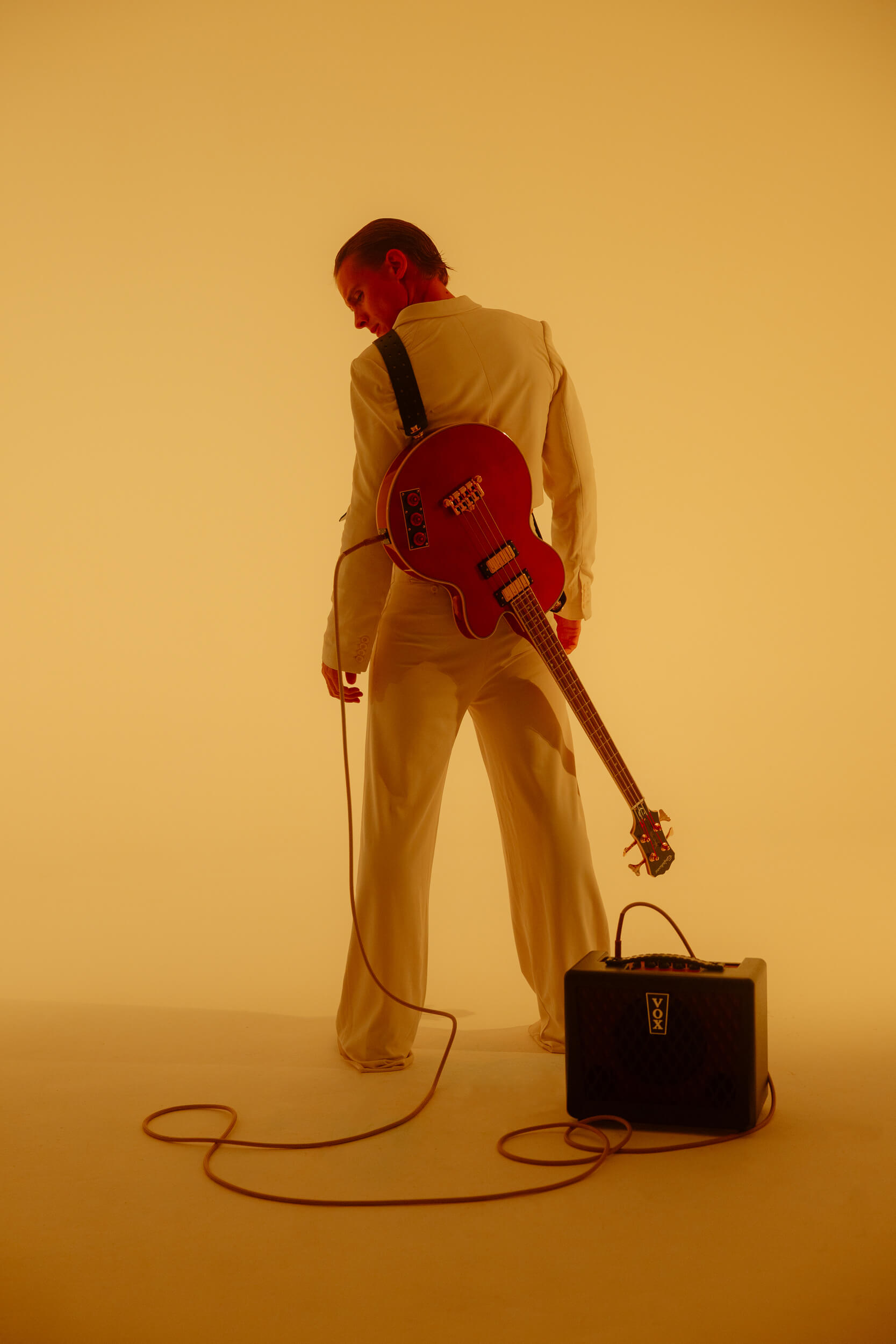
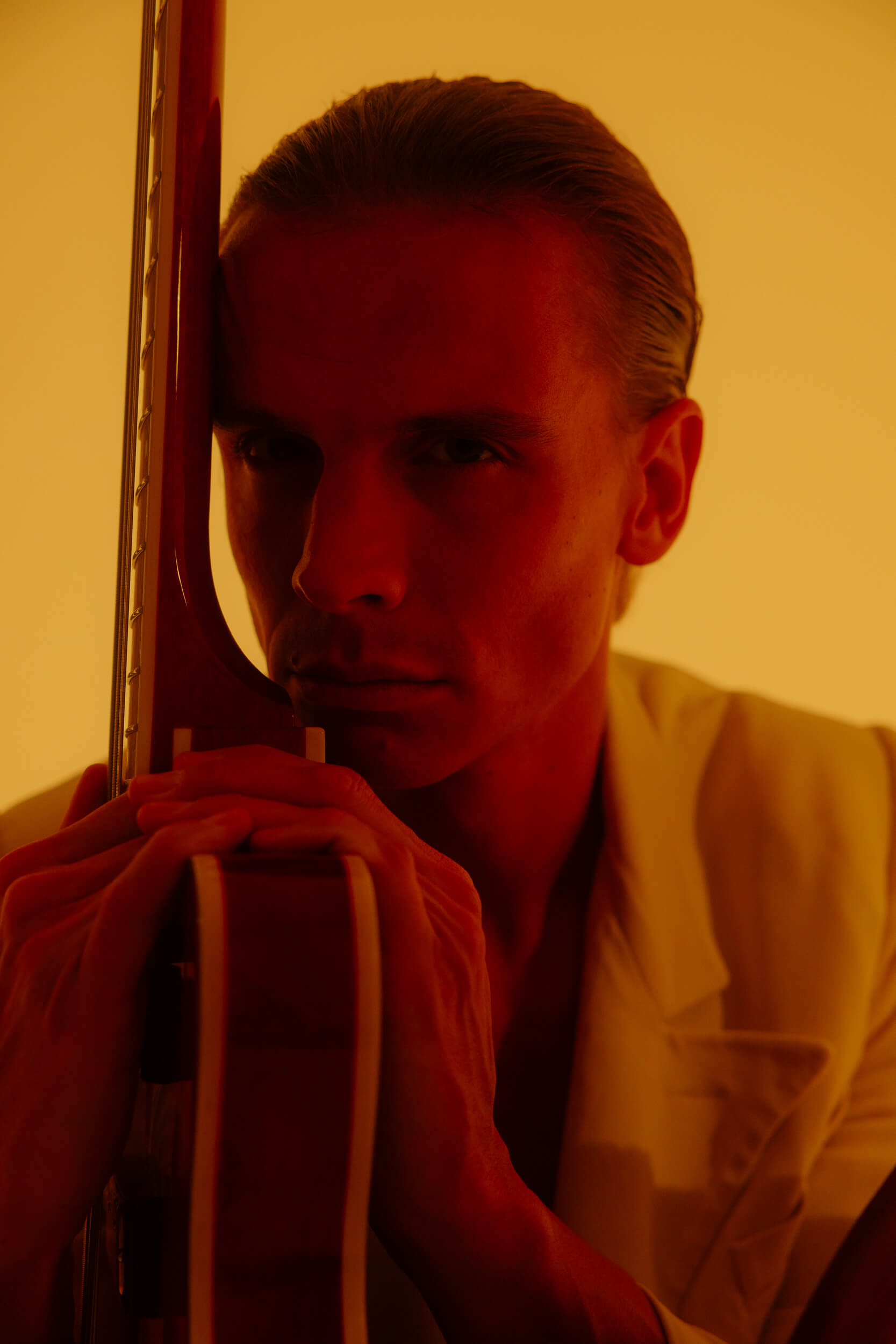
Yes, I wonder why alcohol has to make my hour happy.
Bravissima. Why alcohol? Perhaps because it makes you forget about what’s going on around?
And forget about yourself while giving you the illusion of happiness. Which however disappears after a few hours.
Exactly.
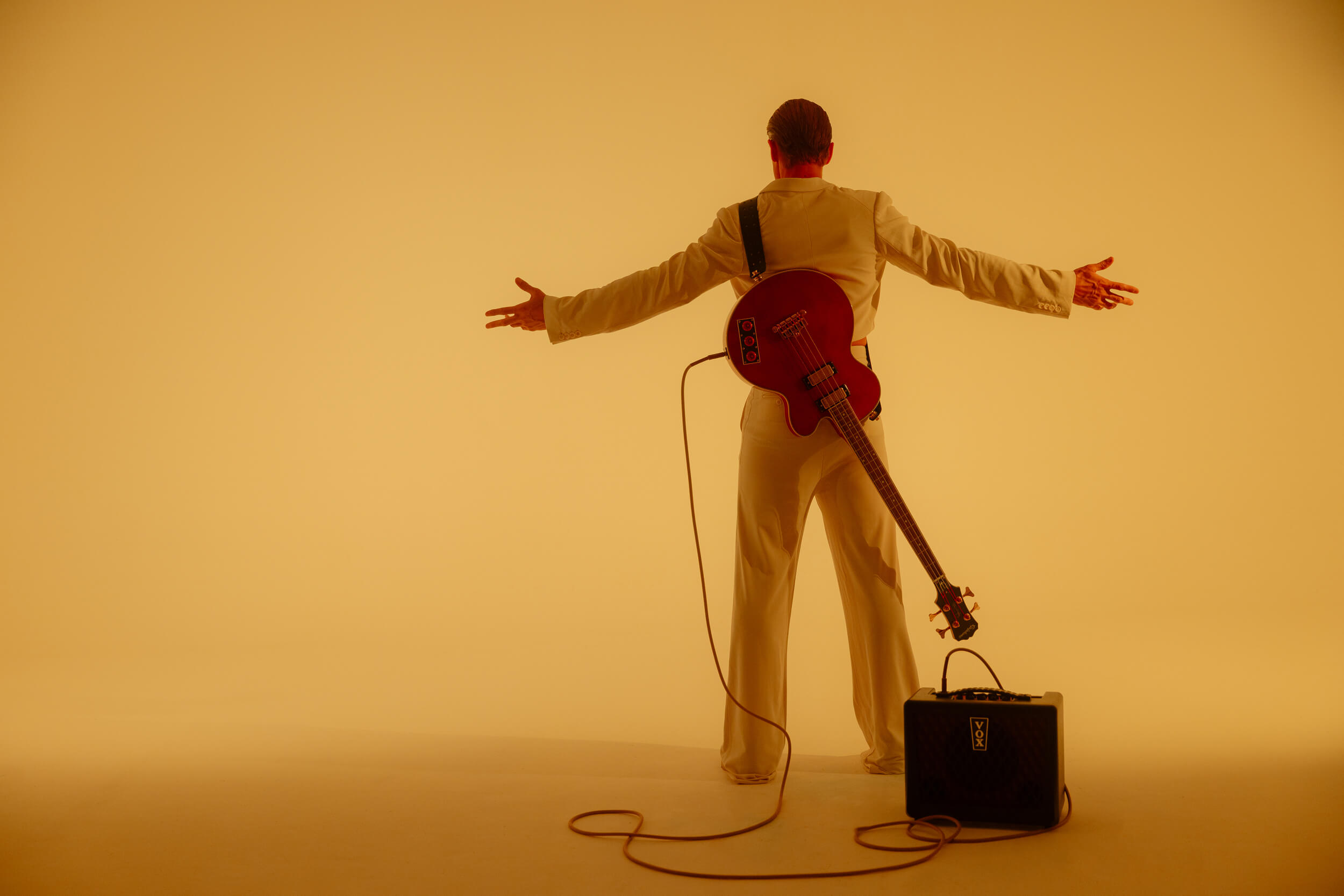
Photos & Video by Johnny Carrano.
Grooming by Sofia Caspani.
Model: Elena Bossi.
Thanks to Sara Battelli.
LOOK 1
Trousers: GAS
Sweater: Nude Project
LOOK 2
Total Look: Uniqlo
LOOK 3
Total Look: Adelbel
Shoes: Santoni

